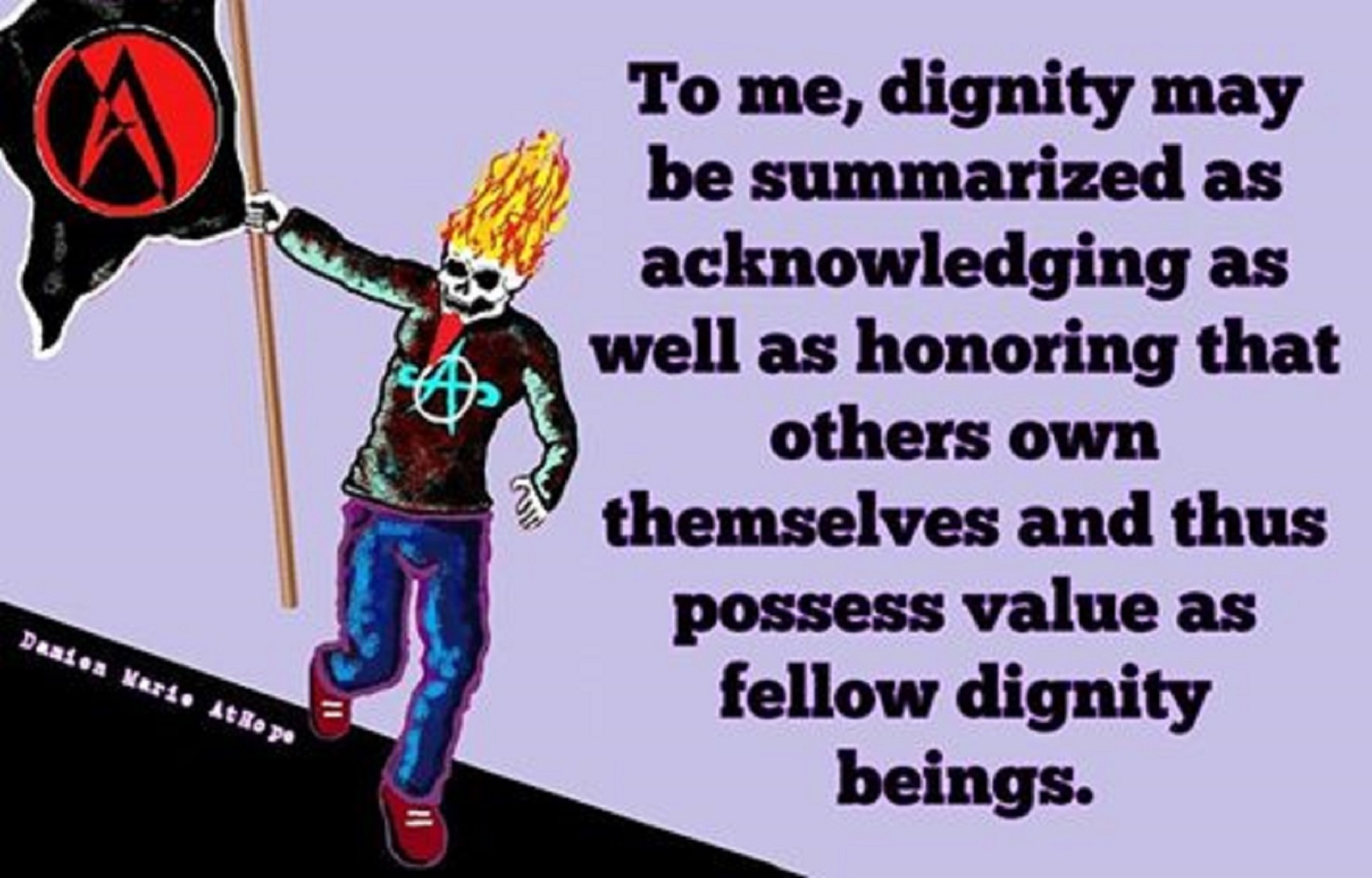
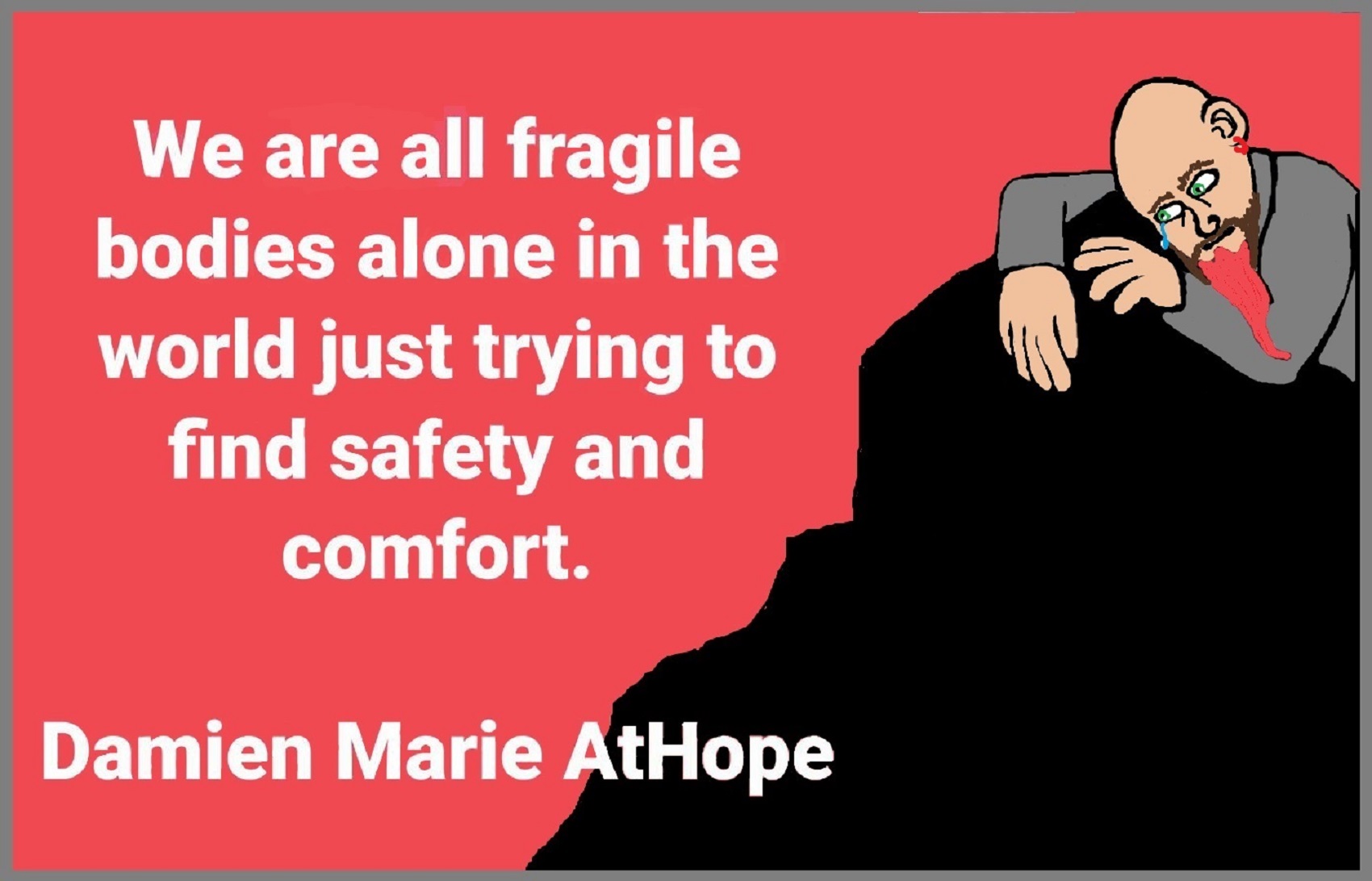
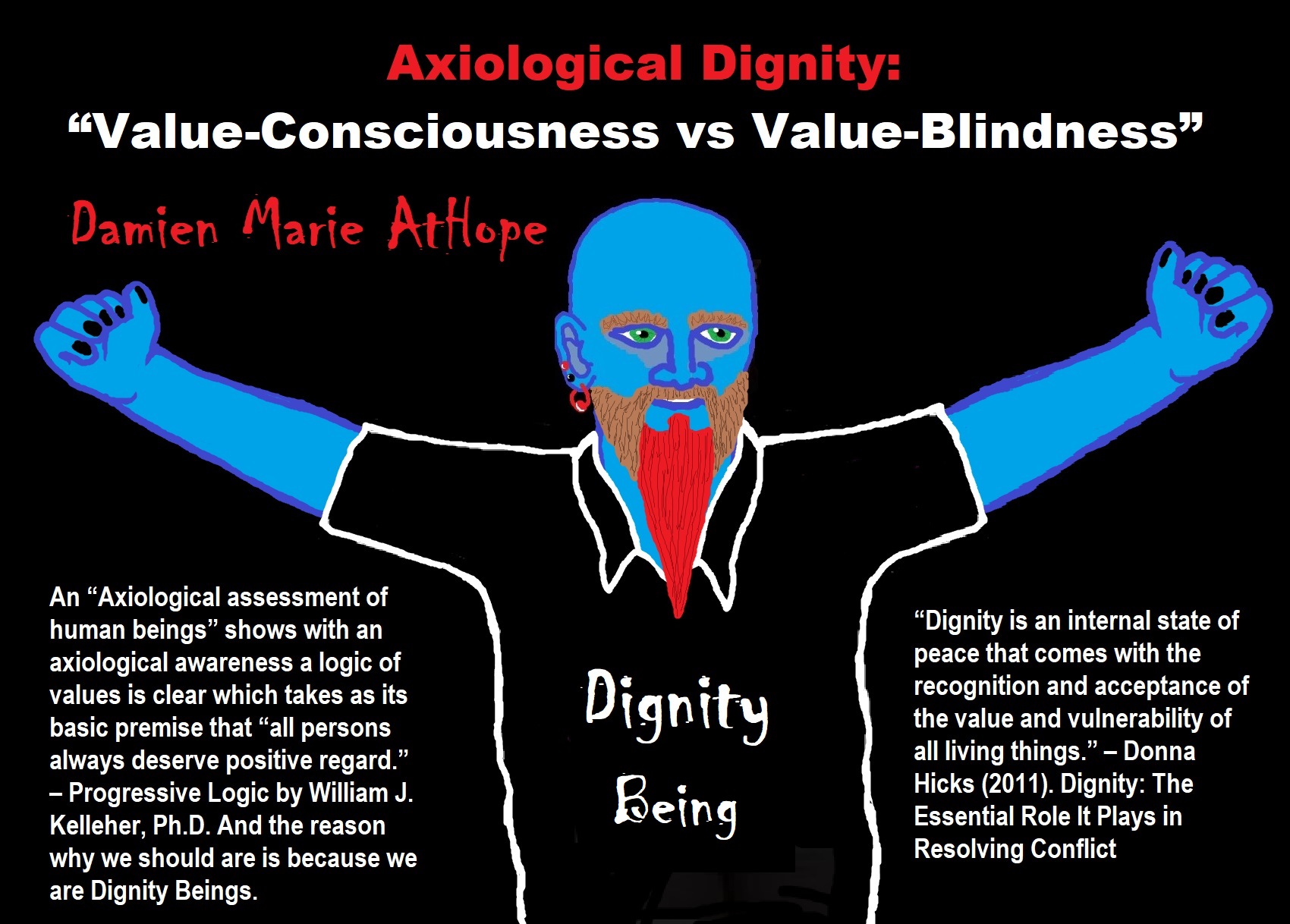
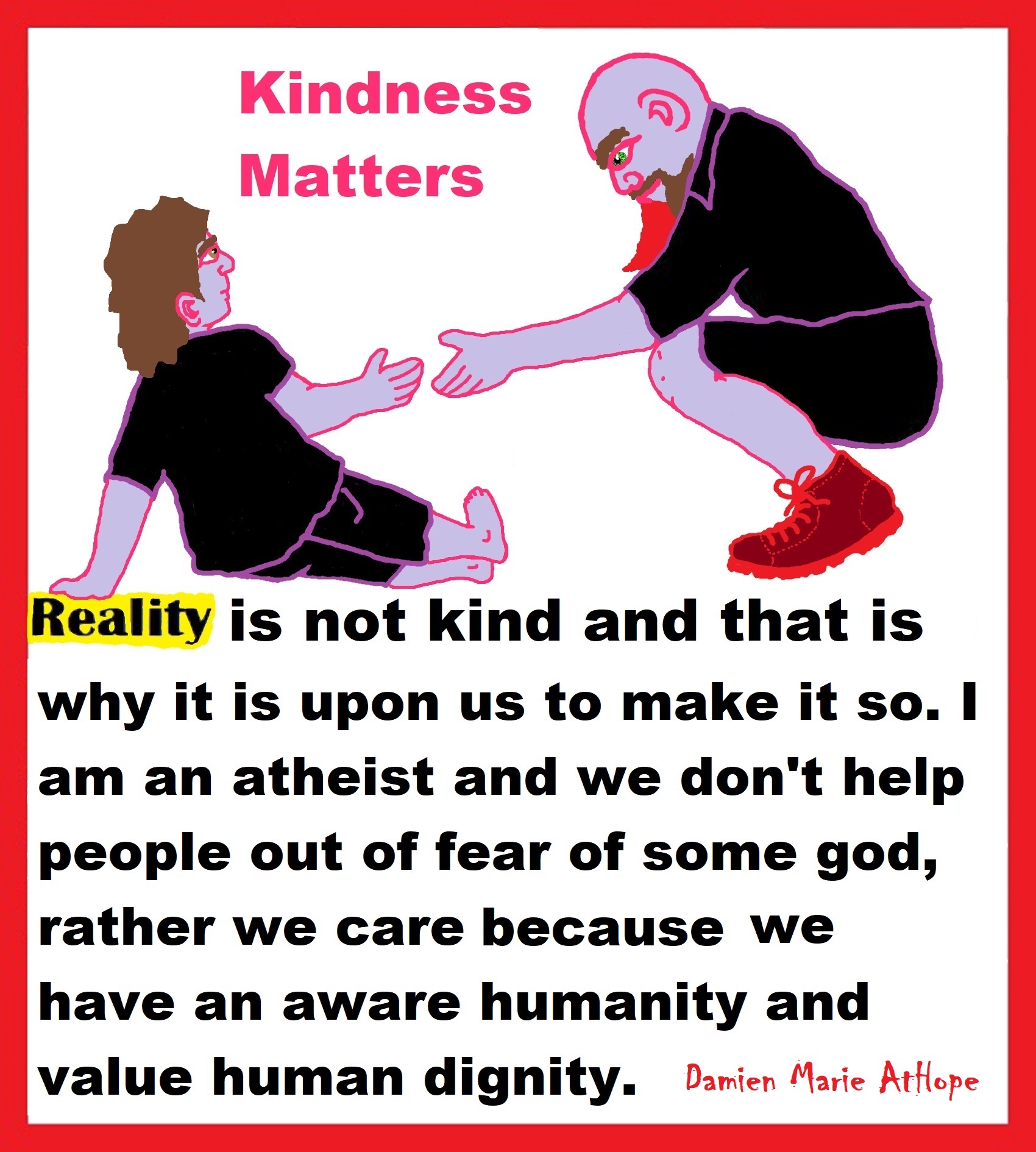
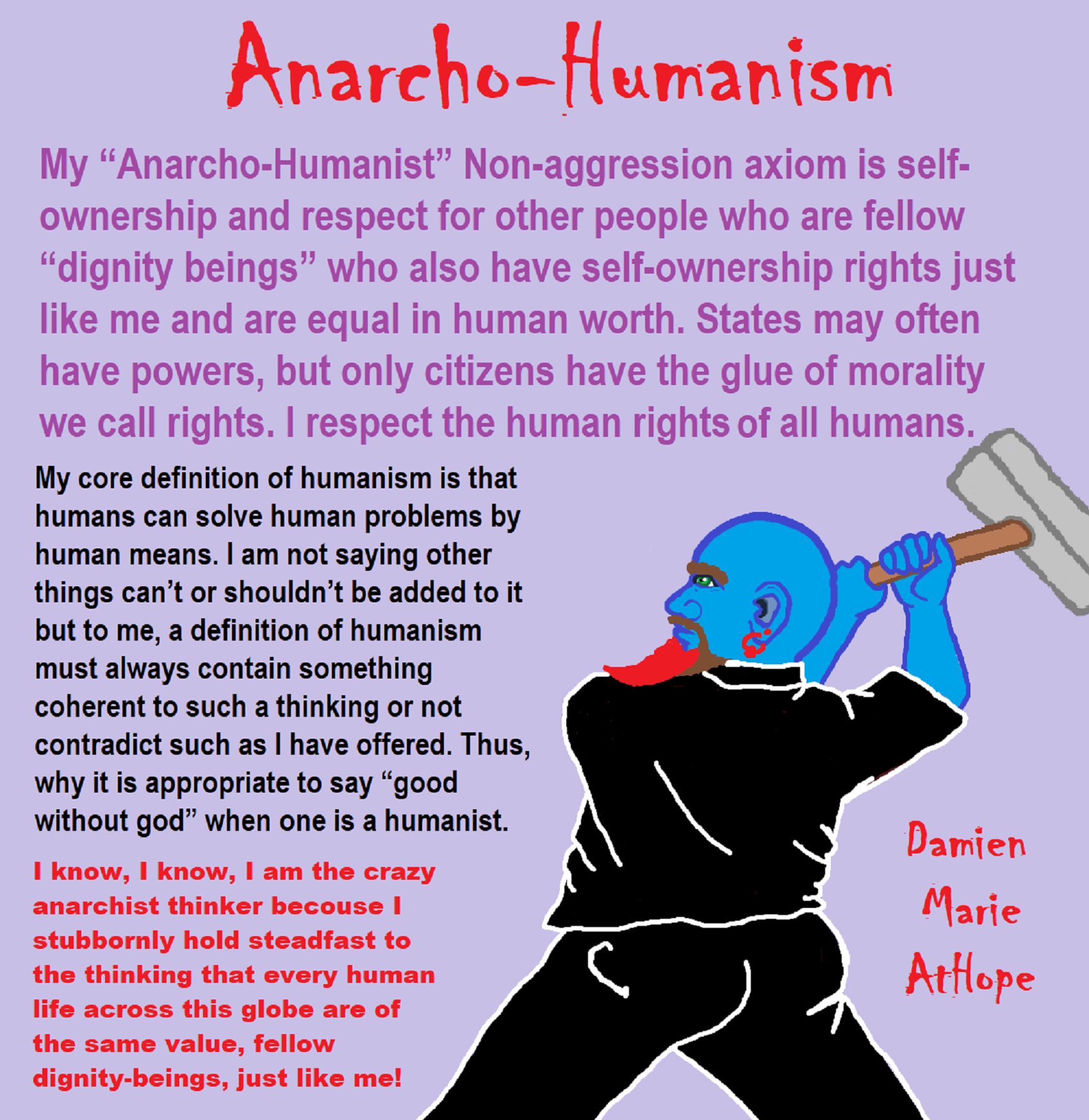
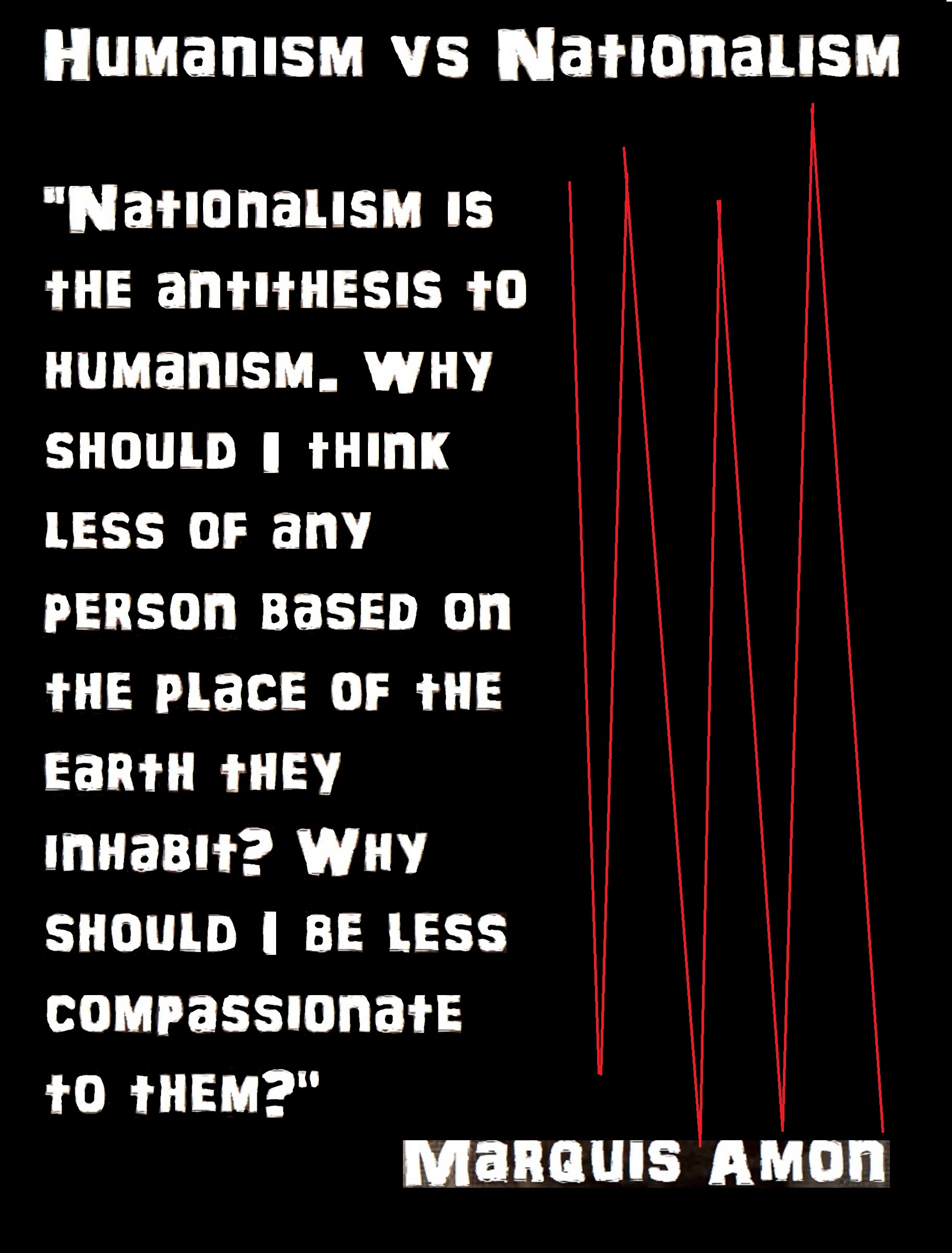
I may never know just how beautiful you are, until you are kind.
In the end, all we have is each other and life is just too damn short to not be kind. It is not my moment of the greatest selfishness that holds good memories in my heart. No, it is my moment of the greatest selflessness that holds good memories in my heart.
Axiological Dignity Being Theory*
To me, an “Axiological assessment of human beings” shows with an axiological awareness a logic of values is clear which takes as its basic premise that “all persons always deserve positive regard.” – Progressive Logic by William J. Kelleher, Ph.D. And the reason why we should are is because we are Dignity Beings.
“Dignity is an internal state of peace that comes with the recognition and acceptance of the value and vulnerability of all living things.” – Donna Hicks (2011). Dignity: The Essential Role It Plays in Resolving Conflict
I am Just Another Fellow Being of Dignity
We are all an equal humanity, even I am a nothing, a no one, just one of the whole, which we all must care about if we want true human-flourishing, and if it must, let it start with me. May I be a true person of value, an honorable human, just another, a fellow dignity-being. I am inspired by philosophy, enlightened by archaeology and grounded by science that religious claims, on the whole, along with their magical gods, are but Dogmatic-Propaganda, myths and lies. Kindness beats prayers every time, even if you think prayer works, you know kindness works. Think otherwise, do both without telling people and see which one they notice. Aspire to master the heavens but don’t forget about the ones in need still here on earth. You can be kind and never love but you cannot love and never be kind. Therefore, it is this generosity of humanity, we need the most of. So, if you can be kind, as in the end some of the best we can be to others is to exchange kindness. For too long now we have allowed the dark shadow of hate to cloud our minds, while we wait in silence as if pondering if there is a need to commiserate. For too long little has been done and we too often have been part of this dark clouded shame of hate. Simply, so many humans now but sadly one is still left asking, where is the humanity?
Why Ought We Care?
Because kindness is like chicken soup to the essence of who we are, by validating the safety needs of our dignity. When the valuing of dignity is followed, a deep respect for one’s self and others as dignity beings has become one’s path. When we can see with the eyes of love and kindness, how well we finally see and understand what a demonstrates of a mature being of dignity when we value the human rights of others, as we now see others in the world as fellow beings of dignity. We need to understand what should be honored in others as fellow dignity beings and the realization of the value involved in that. As well as strive to understand how an attack to a person’s “human rights” is an attack to the value and worth of a dignity being. Yes, I want to see “you” that previous being of dignity worthy of high value and an honored moral weight to any violation of their self-ownership. And this dignity being with self-ownership rights is here before you seeking connection. what will you do, here you are in the question ever present even if never said aloud, do you see me now or are you stuck in trying to evaluate my value and assess worth as a fellow being of dignity.
A violation of one’s dignity (Which it the emotional, awareness or the emotional detection of the world) as a dignity being can be quite harmful, simply we must see how it can create some physiological disturbance in the dignity being its done to. I am a mutualistic thinker and to me we all are in this life together as fellow dignity beings. Therefore, I want my life to be of a benefit to others in the world. We are natural evolutionary derived dignity beings not supernatural magic derived soul/spirit beings. Stopping lying about who we are, as your made-up magic about reality which is forced causing a problem event (misunderstanding of axiological valuations) to the natural wonder of reality. What equals a dignity worth being, it is the being whose species has cognitive awareness and the expense of pain. To make another dignity being feel pain is to do an attack to their dignity as well as your own. What equals a dignity worth being, it is the being whose species has cognitive awareness and the expense of pain.
When I was younger I felt proud when I harmed those I did not like now I find it deserving even if doing it was seen as the only choice as I now see us for who we are valuable beings of dignity. I am not as worried about how I break the box you believe I need to fit as I am worried about the possibility of your confining hopes of hindering me with your limits, these life traps you have decided about and for me are as owning character attacks to my dignity’s needs which can be generalized as acceptance, understanding, and support. As I see it now, how odd I find it to have prejudice or bigotry against other humans who are intact previous fellow beings of dignity, we too often get blinded by the external packaging that holds a being of dignity internally. What I am saying don’t judge by the outside see the worth and human value they have as a dignity being. Why is it easier to see what is wrong then what is right? Why do I struggle in speaking what my heart loves as thorough and as passionate as what I dislike or hate? When you say “an act of mercy” the thing that is being appealed to or for is the proposal of or for the human quality of dignity.
May my lips be sweetened with words of encouragement and compassion. May my Heart stay warm in the arms kindness. May my life be an expression of love to the world. Dignity arises in our emotional awareness depending on cognition. Our dignity is involved when you feel connected feelings with people, animals, plants, places, things, and ideas. Our dignity is involved when we feel an emotional bond “my family”, “my pet”, “my religion”, “my sport’s team” etc. Because of the core sensitivity of our dignity, we feel that when we connect, then we are also acknowledging, understanding, and supporting a perceived sense of dignity. Even if it’s not actually a dignity being in the case of plants, places, things, and ideas; and is rightly interacting with a dignity being in people and animals. We are trying to project “dignity developing motivation” towards them somewhere near equally even though human and animals don’t have the same morality weight to them.
I am anthropocentric (from Greek means “human being center”) as an Axiological Atheist. I see humans value as above all other life’s value. Some say well, we are animals so they disagree with my destination. But how do the facts play out? So, you don’t have any difference in value of life? Therefore, a bug is the same as a mouse, a mouse is the same as a dolphin, a dolphin is the same as a human, all to you have exactly the same value? You fight to protect the rights of each of them equally? And all killing of any of them is the same crime murder? I know I am an animal but you also know that we do have the term humans which no other animal is classified. And we don’t take other animals to court as only humans and not any other animals are like us. We are also genetically connected to plants and stars and that still doesn’t remove the special class humans removed from all other animals.
A society where you can kill a human as easily as a mosquito would simply just not work ethically to me and it should not to any reasonable person either. If you think humans and animals are of equal value, are you obviously for stronger punishment for all animals to the level of humans? If so we need tougher laws against all animals including divorce and spousal or child support and we will jail any animal parent (deadbeat animal) who does not adequately as we have been avoiding this for too long and thankfully now that in the future the ideas about animals being equal we had to create a new animal police force and animal court system, not to mention are new animal jails as we will not accept such open child abuse and disregard for responsibilities? As we don’t want to treat animals as that would be unjust to some humans, but how does this even make sense?
To me, it doesn’t make sense as humans a different from all other animals even though some are similar in some ways. To further discuss my idea of *dignity developing motivation” can be seen in expressions like, I love you and I appreciate you. Or the behavior of living and appreciating. However, this is only true between higher cognitive aware beings as dignity and awareness of selfness is directly related to dignity awareness. The higher the dignity awareness the higher the moral weight of the dignity in the being’s dignity. What do you think are the best ways to cultivate dignity? Well, to me dignity is not a fixed thing and it feels honored or honoring others as well as help self-helping and other helping; like ones we love or those in need, just as our dignity is affected by the interactions with others. We can value our own dignity and we can and do grow this way, but as I see it because we are a social animals we can usually we cannot fully flourish with our dignity.
Thus, dignity is emotionally needy for other dignity beings that is why I surmise at least a partially why we feel empathy and compassion or emotional bonds even with animals is a dignity awareness and response. Like when we say “my pet” cat one is acknowledging our increased personal and emotional connecting. So, when we exchange in experience with a pet animal what we have done is we raze their dignity. Our dignity flourishes with acceptance, understanding and support. Our dignity withers with rejection, misunderstanding, and opposition. Dignity: is the emotional sensitivity of our sense of self or the emotional understanding about our sense of self. When you say, they have a right to what they believe, what I hear is you think I don’t have a right to comment on it. Dignity is the emotional sensitivity of our sense of self or the emotional understanding about our sense of self. To me when we say it’s wrong to kill a human, that person is appealing to our need to value the dignity of the person.
The person with whom may possibly be killed has a life essence with an attached value and moral weight valuations. And moral weight,’ which is different depending on the value of the dignity being you are addressing understanding moral weight as a kind of liability, responsibility, or rights is actualized. So, it’s the dignity to which we are saying validates the right to life. But I believe all living things with cognitively aware have a dignity. As to me dignity is the name I home to the emotional experience, emotional expression, emotional intelligence or sensitivity at the very core of our sense of self the more aware the hire that dignity value and thus worth.
Dignity is often shredded similar to my thinking: “Moral, ethical, legal, and political discussions use the concept of dignity to express the idea that a being has an innate right to be valued, respected, and to receive ethical treatment. In the modern context dignity, can function as an extension of the Enlightenment-era concepts of inherent, inalienable rights. English-speakers often use the word “dignity” in prescriptive and cautionary ways: for example, in politics it can be used to critique the treatment of oppressed and vulnerable groups and peoples, but it has also been applied to cultures and sub-cultures, to religious beliefs and ideals, to animals used for food or research, and to plants.
“Dignity” also has descriptive meanings pertaining to human worth. In general, the term has various functions and meanings depending on how the term is used and on the context.” Dignity, authenticity and integrity are of the highest value to our experience, yet ones that we must define for ourselves. People of hurt and harm, you are not as free to attack other beings of dignity without any effect on you as you may think. So, I am sorry not sorry that there is no such thing in general, as hurting or harming other beings of dignity without psychological destruction to the dignity being in us. This is an understanding that once done hunts and harm of other beings of dignity emotionally/psychologically hurts and harms your life as an acceptance needy dignity being, as we commonly experience moral discuss involuntary as on our deepest level as dignity beings. Disgust is deeply related to our sense of morality.
Ethical Thinking or Moral Reasoning Should be Rational AND Emotional
——————————————————————————————————————————————
Here is thinking on disgust relating to morality by Art Markman Ph.D. called: “Disgust and Morality”
“Picking up the newspaper is an invitation to an emotional joyride. Last weekend in Austin, for example, the news that the Longhorns had beaten Nebraska led to a collective whoop of joy. Most of the emotions you get from the newspaper are less pleasant, though. News reports about the planning of the attacks in Mumbai, for example, can lead to anger. Reports about child prostitution rings can lead to disgust. Disgust is the emotion that I want to talk about today. Your ill feeling is being caused by disgust for the events described in the story. This view of disgust suggests that the emotion of disgust is strongly connected to our sense of morality. That is, when we feel disgust, we should also express feelings of moral outrage. And to counteract those emotions, we should increase our concern with purity. A paper by E.J. Horberg, Christopher Oveis, Dacher Keltner, and Adam Cohen in the December, 2009 issue of the Journal of Personality and Social Psychology looked at this issue. First, they looked at the difference between disgust and anger. They had people read about relatively minor violations of purity and violations of justice. A violation of purity might be a story about a brother and sister who like to kiss passionately when nobody is around. A violation of justice might be a person who steals books from the library that other people need to study. People judged how wrong they felt that these violations were. People also rated how angry and disgusted they were feeling. The amount of disgust people were feeling was related to the strength of their ratings of the wrongness of the purity violations. The amount of anger people were feeling was related to the strength of their ratings of the wrongness of the justice violations. Another study in this series looked at the causal relationship between disgust and moral sense. In this study, people watched a video. For some people, the video was disgusting (the scene from the movie Trainspotting in which the main character has to reach through a toilet filled with feces). For other people, the video was designed to generate sadness (a scene in which a child watches a father’s death). After seeing these videos, people read about a variety of violations of purity and justice (like those I just described). The people who watched the disgusting video found the violations of purity to be much more wrong than the people who watched the sadness video. Neither of these videos had much impact at all on people’s judgments of the wrongness of violations of justice. These studies suggest that there is a tight relationship between our sense of moral purity and the emotion of disgust. Violations of our sense of moral purity lead us to feel the emotion of disgust. When we experience the emotion of disgust, we also change our judgments of the moral purity of others.” https://www.psychologytoday.com/blog/ulterior-motives/200912/disgust-and-morality
I am a social animal, who is a being of dignity just like you and we can’t stop possessing the the world emotionally requiring emotional intelligence to manage this phenomenological experiences involved.
Here is more on what is involved when I use the word phenomenological as explained by Philosophy Basics: “Phenomenology is a broad discipline and method of inquiry in philosophy, developed largely by the German philosophers Edmund Husserl and Martin Heidegger, which is based on the premise that reality consists of objects and events (“phenomena”) as they are perceived or understood in the human consciousness, and not of anything independent of human consciousness. It can be considered a branch of Metaphysics and of Philosophy of Mind, although many of it proponents claim that it is related to, but distinct from, the other key disciplines in philosophy (Metaphysics, Epistemology, Logic and Ethics), and that it represents more a distinct way of looking at philosophy which has repercussions on all of these other fields. It has been argued that it differs from other branches of philosophy in that it tends to be more descriptive than prescriptive. It is only distantly related to the epistemological doctrine of Phenomenalism (the theory that physical objects do not exist as things in themselves but only as perceptual phenomena or bundles of sense-data situated in time and in space). Phenomenology is the study of experience and how we experience. It studies structures of conscious experience as experienced from a subjective or first-person point of view, along with its “intentionality” (the way an experience is directed toward a certain object in the world). It then leads to analyses of conditions of the possibility of intentionality, conditions involving motor skills and habits, background social practices and, often, language. Experience, in a phenomenological sense, includes not only the relatively passive experiences of sensory perception, but also imagination, thought, emotion, desire, volition and action. In short, it includes everything that we live through or perform. Thus, we may observe and engage with other things in the world, but we do not actually experience them in a first-person manner. What makes an experience conscious is a certain awareness one has of the experience while living through or performing it. However, as Heidegger has pointed out, we are often not explicitly conscious of our habitual patterns of action, and the domain of Phenomenology may spread out into semi-conscious and even unconscious mental activity. Many Analytic Philosophers, including Daniel Dennett (1942 – ), have criticized Phenomenology on the basis that its explicitly first-person approach is incompatible with the scientific third-person approach, although Phenomenologists would counter-argue that natural science can make sense only as a human activity which presupposes the fundamental structures of the first-person perspective. John Searle has criticized what he calls the “Phenomenological Illusion” of assuming that what is not phenomenologically present is not real, and that what is phenomenologically present is in fact an adequate description of how things really are. The term “phenomenology” is derived from the Greek “phainomenon”, meaning “appearance”. Hence it is the study of appearances as opposed to reality, and as such has it roots back in Plato’s Allegory of the Cave and his theory of Platonic Idealism (or Platonic Realism), or arguably even further back in Hindu and Buddhist philosophy. To differing extents, the methodological scepticism of René Descartes, the British Empiricism of Locke, Hume, Berkeley and Mill, and the Idealism of Immanuel Kant and the German Idealists all had a hand in the early development of the theory. The term was first officially introduced by Johann Heinrich Lambert (1728 – 1777) in the 18th Century, and was subsequently used by Immanuel Kant and Johann Gottlieb Fichte, and especially by G. W. F. Hegel in his “Phenomenology of Spirit” of 1807. Phenomenology, as it is known today, however, is essentially the vision of one man, Edmund Husserl, which he launched in his “Logical Investigations” of 1901, although credit should also be given to the pioneering work on intentionality (the notion that consciousness is always intentional or directed) by Husserl’s teacher, the German philosopher and psychologist Franz Brentano (1838 – 1917) and his colleague, Carl Stumpf (1848 – 1936). Husserl formulated his classical Phenomenology first as a kind of “descriptive psychology” (sometimes referred to as Realist Phenomenology) and later as a transcendental and eidetic science of consciousness (Transcendental Phenomenology). In his “Ideas” of 1913, he established the key distinction between the act of consciousness (“noesis”) and the phenomena at which it is directed (the “noemata”). In his later transcendental period, Husserl concentrated more on the ideal, essential structures of consciousness, and introduced the method of phenomenological reduction specifically to eliminate any hypothesis on the existence of external objects. Martin Heidegger criticized and expanded Husserl’s phenomenological enquiry (particularly in his “Being and Time” of 1927) to encompass our understanding and experience of Being itself, and developed his original theory of “Dasein” (the non-dualistic human being, engaged in the world). According to Heidegger, philosophy is not at all a scientific discipline, but is more fundamental than science itself (which to him is just one way among many of knowing the world, with no specialized access to truth). Heidegger, then, took Phenomenology as a metaphysical ontology rather than as the foundational discipline Husserl believed it to be. Husserl charged Heidegger with raising the question of ontology but failing to answer it, but Heidegger’s development of Existential Phenomenology greatly influenced the subsequent French Existentialism movement. Other than Husserl and Heidegger, the most famous of the classical Phenomenologists were Jean-Paul Sartre, Maurice Merleau-Ponty (1908 – 1961), Max Scheler (1874 – 1928), Edith Stein (1891 – 1942), Dietrich von Hildebrand (1889 – 1977), Alfred Schutz (1899 – 1959), Hannah Arendt (1906 – 1975) and Emmanuel Levinas (1906 – 1995). Realist Phenomenology (or Realistic Phenomenology): Husserl’s early formulation, based on the first edition of his “Logical Investigations”, which had as its goal the analysis of the intentional structures of mental acts as they are directed at both real and ideal objects. This was the preferred version of the Munich Group at the University of Munich in the early 20th Century, led by Johanes Daubert (1877 – 1947) and Adolf Reinach (1883 -1917), as well as Alexander Pfänder (1871 – 1941), Max Scheler (1874 – 1928), Roman Ingarden (1893 – 1970), Nicolai Hartmann (1882 – 1950) and Hans Köchler (1948 – ). Transcendental Phenomenology (or Constitutive Phenomenology): Husserl’s later formulation, following from his 1913 “Ideas”, which takes the intuitive experience of phenomena as its starting point, and tries to extract from it the generalized essential features of experiences and the essence of what we experience, setting aside questions of any relation to the natural world around us.” http://www.philosophybasics.com/branch_phenomenology.html
Sociological and Psychological Ontology of Morality
“In relation to the objective and subjective correspondence to reality, we will consider the sociological and psychological ontology of morality. To me morality (relatively involves moral actors, moral reasoning, moral capital, moral concerns and moral compulsions) is a thinking in relation of behavior to or with “other” and is involved in a cognitive aware (psychological development of, pertaining to, or affecting the mind, especially as a function of awareness, feeling, or motivation) interaction (most commonly social interaction) by humans and thus is both a subjective aspect in the world as it is only positioned to cognitive aware interaction of humans and objective to impacts on the moral actors, moral reasoning, moral capital, moral concerns and moral compulsions choices positioned to cognitive aware interactions of humans. Nonhuman animals are not doing or held accountable for this thing(s) we label morality, though this does not remove all moral capital they hold or moral weight in our relations to them, because what happens to nonhuman animals can be attach to moral relevant interactions with them or some indirect secondary connections to other factors (i.e. someone’s pet). I feel that morality and the moral relevant choices only relates to occurrences linked to thinking in relation of behavior involved in relation to or with “other” in cognitive aware interaction of humans. I thus feel with no interaction relation to or with “other” then there is no such thing as morality occurring. In a sense to me when nothing of interaction is happening to an external “other” even if, the internal self in question is a cognitive aware human. Such as, if one is by them self and only do things to themselves there is no morality involved. I feel morality in a sense cannot happen to you by you, it is your interacting with others, other things, or their relation to “other” but to me this is likely an unavoidable reality that corresponds to morality. Bodily moral disgust: what it is, how it is different from anger, and why it is an unreasoned emotion. With the recent upswing in research interest on the moral implications of disgust, there has been uncertainty about what kind of situations elicit moral disgust and whether disgust is a rational or irrational player in moral decision making. We first outline the benefits of distinguishing between bodily violations (e.g., sexual taboos, such as pedophilia and incest) and nonbodily violations (e.g., deception or betrayal) when examining moral disgust. We review findings from our lab and others’ showing that, although many existing studies do not control for anger when studying disgust, disgust at nonbodily violations is often associated with anger and hard to separate from it, while bodily violations more consistently predict disgust independently of anger. Building on this distinction, we present further empirical evidence that moral disgust, in the context of bodily violations, is a relatively primitively appraised moral emotion compared to others such as anger, and also that it is less flexible and less prone to external justifications. Our review and results underscore the need to distinguish between the different consequences of moral emotions.” https://www.ncbi.nlm.nih.gov/pubmed/23458436
On Disgust and Moral Judgments: A Review by Cristina-Elena Ivan
“While there is a continuing debate on whether cognitive or emotional mechanisms underlie moral judgments, recent studies have illustrated that emotions—particularly disgust—play a prominent role in moral reasoning. This review explores the role of disgust in moral judgments. I distinguish between three relevant claims regarding its involvement in moral cognition and argue that the least appealing (i.e., disgust is just anger in disguise) is also the one with the least empirical support.” http://jeps.efpsa.org/articles/10.5334/jeps.cq/
Self-conscious” (or “Moral”) Emotions Shape Our Social Behavior?
“Name the four “self-conscious” (or “moral”) emotions and explain how these emotions shape our social behavior in a way that ultimately benefits the whole group. Similarly, be able to provide a personal example for each of when you’ve experienced that emotion These are the emotions that an organism can only feel if it has a highly developed sense of self-reflection. Usually, the “self-conscious” emotions are listed as these four: guilt shame, embarrassment, and pride. Two requirements for feeling a “self-conscious” emotion. One: The person needs to be capable of “position-taking,” of knowing how her behaviors would affect or be perceived by others. Two: She needs the ability to imagine how the reception of her behavior would reflect back on her character.” https://www.coursehero.com/file/p2a7bl9/Name-the-four-self-conscious-or-moral-emotions-and-explain-how-these-emotions/
A New Role for Emotions in Epistemology?
Georg Brun & Dominique Kuenzle
“There are some real key issues in epistemology and the theory of emotions that inform various assessments of emotions’ potential significance in epistemology. One could then distinguish five epistemic functions that have been claimed for emotions: motivational force, salience and relevance, access to facts and beliefs, nonpropositional contributions to knowledge and understanding, and epistemic efficiency. We identify two core issues in the discussions about such epistemic functions of emotions: First, even though it is plausible that emotions are involved in epistemic processes, it may be doubted whether they really matter for the normative question of what counts as knowledge or justified belief. Second, some of the epistemic functions claimed for emotions in general may only be attributed to some specifically epistemic emotions, which have been present all along in traditional epistemology, albeit under different labels such as ‘intuitions’.” http://www.georgbrun.ch/publications/Brun-Kuenzle-EE-Intro.pdf
The role of emotion in moral psychology
Bryce Huebner, Susan Dwyer, and Marc Hauser
“Recent work in the cognitive and neurobiological sciences indicates an important relationship between emotion and moral judgment. Based on this evidence, several researchers have argued that emotions are the source of our intuitive moral judgments. However, despite the richness of the correlational data between emotion and morality, we argue that the current neurological, behavioral, developmental and evolutionary evidence is insufficient to demonstrate that emotion is necessary for making moral judgments. We suggest instead, that the source of moral judgments lies in our causal-intentional psychology; emotion often follows from these judgments, serving a primary role in motivating morally relevant action.” http://faculty.georgetown.edu/lbh24/EmAndMoPsy.pdf
The Four Moral Emotions
Ilana Simons Ph.D.
“The four moral emotions are Guilt, Shame, Embarrassment, and Pride Make Societies Work. Recent research on emotion has shifted the traditional focus away from the “basic” emotions to another set of emotions which are thought to be more distinctly human. Focus has turned to the “self-conscious” emotions, which are sometimes also referred to as “moral,” “social,” or “higher-order” emotions. These are the emotions that an organism can only feel if it has a highly developed sense of self-reflection. Usually, the “self-conscious” emotions are listed as these four: guilt, shame, embarrassment, and pride. Researchers (great writers here include Mark Leary, Jeffrey Stuewig and Debra Mashek) tend to cite two requirements for feeling a “self-conscious” emotion. One: The person needs to be capable of “position-taking,” of knowing how her behaviors would affect or be perceived by others. Two: She needs the ability to imagine how the reception of her behavior would reflect back on her character. For example, the fear you can feel in an interview (heart beating fast, voice constricting, palms sweating) is a basic emotion. But the shame that might set in as you leave (“Why do I interview so poorly?!”) is a self-conscious emotion. The self-conscious emotion is the one that arises from understanding how others see us. It influences future behavior. If you are ashamed after an interview, you might take a class in public speaking or ask for input from your friends (“what kind of person do I seem like to you?”). The self-conscious emotion binds us back to others–to their expectations and ideas. For another example, consider anger. The anger I might feel at having my wallet snatched is a basic emotion. But if I write a letter to the editor arguing for new laws addressing local crime, that’s pride, a self-conscious emotion. I want to establish my morals in relation to the thief. Self-conscious emotions are emotions in which we imagine our conformity or nonconformity to society’s norms. All our emotions work with amazing coordination really–like a symphony. One emotion can trigger another, to keep us in balance with the group. For instance, a heavy tendency for joy, anger, and pride might tilt a woman toward a career in business. She might feel strongest when finding investment deals and making money on the back of others. In this, she scores big points for individual preservation. She gets rich. But in time–if she’s screwed some clients–the feelings of guilt and shame might also set in. That would be a good thing for the Social Contract. Influenced by guilt, she might shift her behavior–giving to charity, mentoring some kid, working to protect the society for a bit. Some might say she’s acting altruistically “for the wrong reasons,” but guilt is undoubtedly “right” when we think of the social contract it serves. In this way, our emotions serve both to propel the individual and to protect the larger group that affords every individual safety. Emotions are our rubber bands for propelling individual (and group) gain while protecting the society in which gain happens. All this is just one small way of thinking of emotion–specifically, with a heavy evolutionary lens. There are other ways to approach the phenomenon of emotion.” https://www.psychologytoday.com/blog/the-literary-mind/200911/the-four-moral-emotions
Emotional intelligence?
“Emotional intelligence is the capacity of individuals to recognize their own, and other people’s emotions, to discriminate between different feelings and label them appropriately, to use emotional information to guide thinking and behavior, and to manage and/or adjust emotions to adapt environments or achieve one’s goal(s) Although the term first appeared in a 1964 paper by Michael Beldoch, it gained popularity in the 1995 book by that title, written by the author, psychologist, and science journalist Daniel Goleman. Since this time Goleman’s 1995 theory has been criticized within the scientific community. There are currently several models of EI. Goleman’s original model may now be considered a mixed model that combines what have subsequently been modeled separately as ability EI and trait EI. Goleman defined EI as the array of skills and characteristics that drive leadership performance. The trait model was developed by Konstantin Vasily Petrides in 2001. It “encompasses behavioral dispositions and self-perceived abilities and is measured through self-report”. The ability model, developed by Peter Salovey and John Mayer in 2004, focuses on the individual’s ability to process emotional information and use it to navigate the social environment. Studies have shown that people with high EI have greater mental health, job performance, and leadership skills although no causal relationships have been shown and such findings are likely to be attributable to general intelligence and specific personality traits rather than emotional intelligence as a construct. For example, Goleman indicated that EI accounted for 67% of the abilities deemed necessary for superior performance in leaders, and mattered twice as much as technical expertise or IQ. Other research finds that the effect of EI on leadership and managerial performance is non-significant when ability and personality are controlled for, and that general intelligence correlates very closely with leadership. Markers of EI and methods of developing it have become more widely coveted in the past decade. In addition, studies have begun to provide evidence to help characterize the neural mechanisms of emotional intelligence. Criticisms have centered on whether EI is a real intelligence and whether it has incremental validity over IQ and the Big Five personality traits. Review finds that, in most studies, poor research methodology has exaggerated the significance of EI.” https://en.m.wikipedia.org/wiki/Emotional_intelligence
Critical Analysis of Emotional Intelligence
Linda Elder
“Daniel Goleman’s book, Emotional Intelligence. My overview of the book is that it provides a useful reminder of the importance of emotions in human life and of the fact that our emotions are intimately connected with cognitive matters, with thinking, in short. However, it is also my view that in his rush to make sense of the results of the data of brain research, Goleman inadvertently often becomes the unwitting perpetrator of social stereotypes about the relationship between emotion and reason. If we are concerned with developing our rationality in order to improve our lives, we must understand the powerful role that both emotions and thoughts play in our minds. We must understand the ways in which affect and cognition influence one another in determining both our outlook on life and our behavior. Most importantly, we must come to terms with those truths about the human mind that enable us to begin the process of taking charge of our minds: that thoughts and emotions are inextricably bound, that we have both egocentric and rational tendencies, that our inner conflicts are never best understood as a simple matter between emotion and reason, that self-command of mind takes both extended education and self-discipline, that our fullest rational development is dependent on the development of rational affect, that to bring intelligence to bear upon emotions we must take charge of the thinking underlying those emotions. These important insights are more obscured than illuminated by analyses of the mind such as that offered by Goleman. To develop our awareness of the nature of the human mind and how it functions we must be careful not to over-emphasize the importance of “brain” research. Our most important knowledge of the human mind will always be, ultimately, knowledge drawn from the multiple constructs of the mind. Any theory which we develop of the human mind must make intelligible how it is that minds could create such multiply complex phenomena as poems, novels, plays, dances, paintings, religions, social systems, families, cultures, traditions–and do such diverse things as interpret, experience, plan, question, formulate agendas, laugh, argue, guess, assess, assume, clarify, make inferences, judge, project, model, dramatize, fantasize, and theorize. All of these creations and all of these activities of minds are closely inter-involved with our emotional lives. We are far, very far, from accounting for these products, or their “emotional” connections, by the use of the data of brain research. I doubt we ever will.” http://www.criticalthinking.org/pages/cognition-and-affect-critical-thinking-and-emotional-intelligence/485
Emotional intelligence and Moral Reasoning
“A study results present strong support for the hypotheses that Emotional Intelligence was found to significantly predict 4 of the Big 5 personality traits (Extraversion, Agreeableness, Neuroticism, and Openness). Three of the Big 5 personality traits (Agreeableness, Neuroticism and Openness) were found to significantly, uniquely predict Moral Reasoning. Parametric bootstrapping was used to test the hypothesis that Emotional Intelligence indirectly predicts Moral Reasoning via personality. Consistent with this hypothesis the indirect effect of Emotional Intelligence on Moral Reasoning was significant (Beta = 0.23, p = 0.002). This indicates that individuals with high levels of Emotional Intelligence tend to have high levels of Moral Reasoning.” http://researchonline.nd.edu.au/cgi/viewcontent.cgi?article=1000&context=sci_chapters
Moral Judgment and Emotional Intelligence Level
&
“Our findings suggest that a significant difference between the level of moral judgment and gender was not found.. This finding was consistent with the previous research results both in Turkey and abroad (Al-Ansari, 2002; Aydın, 2011; Çileli 1981; Koyuncu 1983; Kurt, 1996; Seydooğulları, 2008). In contrast to the studies finding, no significant between the level of moral judgment and gender, some studies found significant differences between these variables (Çiftci, 2001; Kaya, 1993; White and Richard, 1999). These different results could stem from measure of the quality of Defining Issues Test (DIT) and same scales. The Defining Issues Test was developed based on Kohlberg’s theory. This theory is criticized by some other researchers, because Kohlberg often conducted his study sample of males and ignored females’ moral development. Therefore, a significant difference between gender and moral judgment may not find like this study that used The Defining Issues Test and same scales. Gilligan, who brings important contributions to the theory of moral development, criticized Kohlberg’s theory. She indicates that on moral issues females are in tendency to consider the care and protection of others compared to males in her theory. In the literature, theoretical approaches in the context of the traditional Kohlberg, conducted among females and male very small number of studies showed that moral judgment pointed to the difference in gender (Çam, Çavdar, Seydooğulları and Çok, 2012). The results of this study indicated that a significant difference was found between moral judgment and level of parent education. According to this result, students who their mothers have under elementary education, the level of moral judgment of these students is higher than others. Also, students, whom their fathers have elementary and high school educations have higher level of moral judgment of these students than others who have fathers graduate from university, When the literature is examined, level of moral judgment is differentiated according to the level of education of the mother and father in many studies (Seydooğulları, 2008; Walker 1986). However, these studies indicate that students who their parents have higher education, the level of moral judgment of these students is higher than others who have level of low education. In many other studies, the level of moral judgment there is no significant relation between the levels of higher education (Şengün, 2003; White and Richard, 1999). These different conclusions may be reached due to the moral judgment is affected by many variables regarding parents like education statute. Therefore, different variables related to mothers and fathers should also be considered in other studies. Foremost among these, level of mother and father’s moral judgment is the most significant variable. Because, mothers and fathers, who have a high level of moral judgment, take responsibility for their children and show better parenting to them (Richardson, Faster and McAdams, 1998). Besides, adherence, compliance and communication which in family process have been predicted the adolescents’ external morality significantly in another study (White and Matawie, 2004). As for that White (2000) indicated a strong bond between family of socialization processes and the content of adolescent moral considerations. Likewise, the adolescents’ levels of moral judgment are differentiated with the attitudes of their parents in other research findings (Minner, 2000). According to the literature, environment, family, school, peers, religion, mass media, economy, culture and many other factors are also effective for moral judgment. So, social and cultural foundations Eren Can Aybek et al. / Procedia – Social and Behavioral Sciences 191 ( 2015 ) 2740 – 2746 2745 are very important for moral development. For these reasons, many other variables should be used regarding parents in other studies for understanding the impact of level of parent’s education on moral judgment.” ref
According to Internet Encyclopedia of Philosophy and its Authors asks us to consider the judgment,
“Suffering from lack of food is bad.” The judgment is usually expressed with the statement “suffering from lack of food is bad.” Call it a “B-statement.” Sometimes, we find it necessary to express it with “it is true that suffering from lack of food is bad.” Call it a “T-statement.” (To complete it, there are “F-statements” like “it is false that suffering from lack of food is bad.”) We use T-statements to emphasize partiality toward “being true to the world.” However, regardless of what motivates us to use T-statements, the explicit ascription of truth in T-statements commands our attention. Does the T-statement add anything extra to the B-statement? If so, what is it that the T-statement says over and above the B-statement? There are two broad ways to answer the question: deflationism and various forms of substantial theory (or what we called above “inflationist theory”). Substantial theorists deny that the B-statement and the T-statement are exactly the same while the deflationist maintains that the difference is merely stylistic. If the deflationist has her way, then it is obvious that antirealists could have truth in moral judgments. (David Brink argues against the coherentist theory of truth with respect to moral constructivism. See Brink 1989, 106-7 and 114; see Tenenbaum, 1996, for the deflationist approach.) Antirealist moral truths would seem irrelevant in marking the realist territory. If some form of substantial theory is true, then the T-statement adds something to what the B-statements say. Here are two alternatives. Letting a coherence theory of truth stand in for the range of “modified theories” (namely, the inflationist theories of truth that are different from the correspondence theory of truth), and the “B-proposition” for what the B-statement describes about the world, the T-statement adds that: (1) The B-proposition corresponds to an actual state of affairs. (2) The B-proposition belongs to a maximally coherent system of belief. It is worth noting also that even the non-descriptivist may say that the T-statement adds to the B-statement, insofar as the B-statement expresses something other than the B-proposition. The non-descriptivist has two alternatives as well. The T-statement adds that (letting a coherence theory of truth stand in for the range of “modified theories,” and the “B-feeling-proposition” stand in for the range of non-descriptivism, for example, the speaker dislikes suffering from lack of food): (3) The B-feeling-proposition corresponds to an actual state of affairs. (4) The B-feeling-proposition belongs to a maximally coherent system of belief. We may say that the T-statement specifies truth conditions for the B-proposition or for the B-feeling-proposition. It could be objected that the non-descriptivist must deny that there are truth-conditions for moral language. Nonetheless, she need not object to moral language describing something about the world figuratively. If option (1) were true, then there would have to be an actual state of affairs that makes the B-statement true. That is, there must be a truth-maker for the statement, “suffering from lack of food is bad,” and the truth-maker is the fact that suffering from lack of food is bad. But no other alternatives require the existence of the fact for them to be true. If one ignores deflationism, truth in moral judgments gives rise to exactly four alternative theories of truth. Realists cannot embrace options (3) and (4) because, as we saw, non-descriptivism is sufficient for moral antirealism. The remaining option (2), although it is a viable option for the realist, falls short of guaranteeing that there are moral facts. In other words, moral realists must find other ways to establish the existence of moral facts, even if option (2) allows a way of maintaining moral truths for the realists. Modified theories, for example, the coherence theory of truth are simply silent about whether there are B-facts. That is, option (2) could be maintained even if there were no B-facts such as suffering from lack of food is bad. Thus, the most direct option for realists in marking her territory from the above list of alternatives is (1). It appears then that the correspondence truth in moral judgments properly marks the realist territory. This is captured in C2: (C2) S is a moral realist if and only if S is a descriptivist; S believes that moral judgments express truth, and S believes that the moral judgments are true when they correspond to the world. Is C2 true? No, it is not. For the antirealist may choose to deny that moral judgments literally describe the world.” http://www.iep.utm.edu/moralrea/
Moral Emotions and Moral Behavior?
“Moral emotions represent a key element of our human moral apparatus, influencing the link between moral standards and moral behavior. This chapter reviews current theory and research on moral emotions. We first focus on a triad of negatively valenced “self-conscious” emotions—shame, guilt, and embarrassment. As in previous decades, much research remains focused on shame and guilt. We review current thinking on the distinction between shame and guilt, and the relative advantages and disadvantages of these two moral emotions. Several new areas of research are highlighted: research on the domain-specific phenomenon of body shame, styles of coping with shame, psychobiological aspects of shame, the link between childhood abuse and later proneness to shame, and the phenomena of vicarious or “collective” experiences of shame and guilt. In recent years, the concept of moral emotions has been expanded to include several positive emotions—elevation, gratitude, and the sometimes morally relevant experience of pride. Finally, we discuss briefly a morally relevant emotional process—other-oriented empathy.” https://www.ncbi.nlm.nih.gov/pmc/articles/PMC3083636/
I am an axiological thinker believing in axiological realism so that is always striving to takes a realistic, or fact-based, view of the world when assessing or understanding value/good/worth. Holding a goal of understands that people have and act upon values. Axiologists thinkers, like me will usually seek to understand what those values are, and to analyze their structure. That empirical orientation to such rationalistic thinking is why axiological realism/scientific realism axiology can serve as the diligent methodological theorizing guide developed my scientific value theorist awareness and analyze, and accommodate the understanding of the term dignity beings . To illustrate this value realism, suppose a theist states they love god(s). Since the science of value has an empirical orientation, a value scientist would see the theistic belief in god(s) not as some actual existing being, instead understand it as a conception in the mind of theist not anything realistic or fact-based. My dignity beings theory as the foundation point to an axiological “dignity being” intrinsic theory of value (also called theory of objective value) is any theory of value which holds that the value of an object, good or service, is intrinsic or contained in the item itself. Most such theories look to the process of producing an item, and the costs involved in that process, as a measure of the item’s intrinsic value. I hold a biopsychosocial model of conception to my axiological dignity being theory which is a broad way to methodologically view human attributes dignity being outcome to variable interaction of biological factors (genetic, biochemical,etc), psychological factors (mood, personality, behavior, etc.), and social factors (cultural, familial, socioeconomic, medical, etc.).
Efficiency of Good?
“According to Robert S. Hartman, “I thought to myself, if evil can be organized so efficiently [by the Nazis] why cannot good? Is there any reason for efficiency to be monopolized by the forces for evil in the world? Why have good people in history never seemed to have had as much power as bad people? I decided I would try to find out why and devote my life to doing something about it.” Formal Axiology, is a specific branch of the science of Axiology. The late Dr. Robert S. Hartman developed this science between 1930 and 1973. It is a unique social science because it is the only social science that has a one to one relationship between a field of mathematics (transfinite set calculus) and its dimensions. The Dimensions of Value by Dr. Hartman identified three dimensions of reality, which he called the Dimensions of Value. We value everything in one of these three ways or in a combination of these dimensions. The Dimensions of Value are Systemic, Extrinsic, and Intrinsic.” https://www.hartmaninstitute.org/journal-of-formal-axiology
More About The Dimensions of Value: http://www.cleardirection.com/docs/dimensions.asp
More About Formal Axiology: http://www.cleardirection.com/docs/formalaxiology.asp
More About Dr. Robert S. Hartman: http://www.cleardirection.com/docs/articles/drhartman.asp
According to Jeff Malpas & Norelle Lickiss in the book, “Perspectives on Human Dignity: A Conversation”
“The idea of human dignity is central to any reflection on the nature of human worth. However, the idea is a complex one that also takes on many different forms. This unique collection explores the idea of human dignity as it arises within these many different domains, opening up the possibility of a multidisciplinary conversation that illuminates the concept itself. The book includes essays by leading Australian and International figures.” ref
The axiological argument for Human Dignity: first in general axiology used in such an endeavor would most likely distinguish between intrinsic and instrumental values with a subclass distinction in this case axiology is also highlighting the difference between intrinsic values and attributed values as well. Intrinsic value is the value something has of itself- the value it has by virtue of its being the kind of thing that it is. It is valuable independent of any valuer’s purposes, beliefs, desires, interests. or expectations.
Truly intrinsic values, per environmental ethicist Holmes Rolston are objectively there—discovered not generated by the valuer, attributed values arc those conveyed by a valuer. Attributed values depend completely upon the purposes, beliefs, desires, interests, or exceptions of a valuer or group of valuers. Instrumental values arc a class of attributed values that is attributed to some entity because it serves a purpose for a valuer. The instrumental value of the entity consists in its serving as a means by which the valuer achieves some purpose, though there can be non-instrumental attributed values as well. for example, the value of humor may serve no clear instrumental purpose. The next step in the argument is that if there are intrinsic values in the world. the recognition of the intrinsic value depends upon one’s ability to discern what kind of thing it is. This brings me to the notion of natural kinds, a relatively new concept in analytic philosophy.
The fundamental idea behind natural kinds are picking something out from the rest of the universe, one must pick it out as a something, this leads to what its proponents call a ‘modest essentialism’-that the essence of something is that why which one picks it out from the rest of reality as anything at all – it’s being a member of a kind, the alternative seems inconceivable. Essentialism is the view that for any specific entity there is a set of attributes which are necessary to its identity and function. The fundamental idea behind natural kinds is relating to how reality is actually completely undifferentiated and that human beings carve up this amorphous stuff for their own purposes, It seems bizarre to suggest that there really are no actual kinds of things in the world independent of human classification- no such things, as stars, slugs, or human beings, Thus, the intrinsic value of a natural entity- the value it has by virtue of being the kind of thing that it is-depends upon one’s ability to pick that entity out as a member of a natural kind, such a value theorizer would then define intrinsic dignity as the intrinsic value of entities that are members of a natural kind that is, as a kind, capable of language, value/moral/ethical rationality, love, free will, value/moral/ethical agency, creativity, and value/moral/ethical/aesthetic sensibility.
My axiological dignity being theory intrinsic dignity is the foundation of all human rights, human respect rights because we recognize intrinsic dignity, we do not bestow dignity to the extent we bestow rights. Human beings have rights that must be respected because of the value they have by virtue of being the kinds of things that they are, Importantly, the logic of natural kinds suggests that one picks individuals out as members of the kind not because they express all the necessary and sufficient predicates to be classified as a member of the species. but by virtue of their inclusion under the extension of the natural kind that, as a kind of thing, has those capacities. The logic of natural kinds is extensional, not intensional. Intensional definition gives the meaning of a term by specifying necessary and sufficient conditions for when the term should be used. The opposite approach to the extensional definition, which defines by listing everything that falls under that definition – an extensional definition of bachelor would be a listing of all the unmarried men in the world. As becomes clear, intensional definitions are best used when something has a clearly defined set of properties, and they work well for terms that have too many referents to list in an extensional definition. It is impossible to give an extensional definition for a term with an infinite set of referents, but an intensional one can often be stated concisely – there are infinitely many even numbers, impossible to list, but the term “even numbers” can be defined easily by saying that even numbers are integer multiples of two. It is not the expression of rationality that makes us human, but OUT belonging to a kind that is capable of rationality that makes us human a high value dignity being.
When a human dignity being is comatose or severely mentally ill, we first pick the individual out as a human being, then we note the disparity between the characteristics of the afflicted individual and the paradigmatic features (of the nature of a paradigm or model of or denoting the relationship between a set of linguistic items that form mutually exclusive choices in particular syntactic roles). Furthermore, characteristics of the afflicted individual and typical development and history of members of the human natural kind. This is how we come to the judgement that the individual is sick: and because that individual is a member of the human natural kind, we recognize an intrinsic value that we call dignity. In recognition of that what we have established the healing professions as a moral response to our humans suffering and injury. Thus, my axiological dignity being theory is arguing that intrinsic human dignity is the foundation of moralities, and offers axiological dignity being theory thinking as at least pragmatically useful and as I am projecting an axiological realism to dignity being theorizing the is/ought concern.
references
http://www.iep.utm.edu/hum-dign/
https://en.wikipedia.org/wiki/Intrinsic_theory_of_value
https://www.academia.edu/4545325/Formal_Axiology_Another_Victim_in_Religions_War_on_Science
https://en.wikipedia.org/wiki/Biopsychosocial_model
https://en.wikipedia.org/wiki/Extensional_and_intensional_definitions#Intensional_definition
According to ethical realist philosopher James Gray,
“The is/ought gap, is a problem in moral philosophy where what is the case and what ought to be the case seem quite different, and it presents itself as the following question to David Hume: How do we know what morally ought to be the case from what is the case? I say we should morally ought to value dignity beings. The is/ought gap doesn’t seem like a problem unless we are dealing with what “morally ought” to be the case. Is what morally ought to be the case a moral fact? Facts are states of affairs—actual things that exist and relations between things that exist. Moral anti-realists (a stated already I am an axiological realism and a scientific realist but I am a moral/ethical realist) think that there are no irreducible moral facts—all moral truths can be reduced to our beliefs, desires, commitments, and so on. How can we know what morally ought to be the case? Hume was an empiricist, so he thought we could only know about reality through observation. The is/ought gap doesn’t seem like a serious problem for moral realism because almost no moral realist philosopher has ever thought that “what you morally ought to do” actually exist as an irreducible moral fact. However, what you morally ought to be could be part of our nature or it could exist in the forms. Additionally, moral realists don’t think that what “morally ought to be the case” needs to be irreducible moral facts at all. Instead, we can rely on intrinsic values as a basis for morality and accept anti-realist beliefs whenever they are sufficiently plausible. The problem with anti-realism (if anything) is that it’s incomplete rather than that it’s entirely false—and we are likely to have assumptions that seem incompatible with anti-realism. Nonetheless, the anti-realist solutions could be more plausible than the realist ones, and that in itself could be a challenge to moral realism.” https://ethicalrealism.wordpress.com/2011/07/19/the-isought-gap-how-do-we-get-ought-from-is/
According to the “Oxford Handbook of Justice in the Workplace” by Russell Cropanzano & Maureen L. Ambrose state,
“Scholarship on justice and affect has expanded dramatically in recent years, spanning investigations of the relationships between justice and discrete emotions as well as justice and affective dimensions (e.g ., valence). Exploring how several leading theories of justice can organize and lend insight to research that takes a dimensional approach to affect. Most prominently, a number of scholars have explored moral outrage in association with perceived injustice. However, justice research examining moral outrage does not always distinguish it from related emotions, such as anger, that may be invoked by self- interest (rather than social concern s) and may motivate actions that are not prosocial. Inattention to this distinction may be attributed to a focus solely on discrete emotions and not also on the moral dimension of emotions. For example, recipients of injustice may feel angry simply because they perceive that their outcomes are unfair or unfavorable, and thus selfish concerns rather than concern about the violations of moral codes that govern society may elicit their emotion. Furthermore, the anger they feel may motivate them to reduce their effort or diminish their engagement on the job for instrumental or identity-based reasons (e.g., to conserve personal resources), rather than in response to prosocial motives. Like the valence and certainty dimensions described earlier, the moral dimension of emotion has implications for both reactions to injustice as well as the nature of justice reasoning. According to the “contempt, anger and disgust” (CAD) triad hypothesis, contempt, anger and are three moral emotions triggered across cultures by different violations of moral codes. Although injustice has long been known to elicit anger as indicated earlier, recent evidence suggests that it also elicits disgust and contempt. For example, three experiments that interactional injustice not only triggers an anger response but also elicits moral disgust both for those experiencing the injustice and for third parties. Moreover, they found that experiencing or observing injustice alters both taste and smell consistent with, and indeed mediated by, a disgust response. Recent evidence also suggests that distributive injustice experienced in the context of an ultimatum bargaining game triggers contempt even when controlling for other (not prototypically moral) emotions such as happiness. Moral emotion may also be integral to deontic justice reasoning in that such emotions are recruited to arouse moral motives and thus “moralize” issues, events, and objects. It is argued that moral emotions are used to convert preferences in to values. By extension, moral emotions such as disgust may imbue events with apparent moral relevance, triggering deontic justice reasoning about those events. For example, manipulated whether subjects experienced more or less prototypically moral negative emotions (i.e., disgust vs. sadness) or neutral emotion. Then, all subjects were given an unfair offer from a partner in an ultimatum bargaining game, which they could accept or reject. Rejecting the offer conflicts with their rational self-interest because neither partner is paid when offers are rejected. Subjects who experienced disgust were more likely to reject offers than those experiencing sadness or neutral emotion, suggesting that the experience of disgust imbued the injustice event with moral implications. A dimensional approach to the moral emotions may offer new insight into research regarding the deonance model by emphasizing the underlying motives that drive responses to injustice (i.e., the desire to maintain moral codes and prosocial action orientation). According to the deonance model of justice, observing or experiencing an act of injustice triggers a dconic state. Deonance is a motivational state that arises within a person when an observed individual violates (willingly or not) a moral norm or interpersonal conduct held by the perceiver. This state creates a desire to see that people are held accountable for their moral injunctions. These motives suggest very different subsequent reactions to the experience of injustice than we might otherwise expect. We may be able to distinguish deontic from instrumental or relational reactions to injustice not only with respect to the primacy of the emotional response or the nature of the emotions triggered, but also with respect to the extent to which the behavioral reactions triggered are prosocial versus self-interested. The same anion may have different motivations: for example, recipients of injustice may take resources from those that behave unfairly toward them in order to enrich themselves (instrumental concern) or to punish and discourage perpetrators (deontic concerns). Alternatively, different responses may be triggered by moral versus non-moral emotion (such as effects on taste and smell has been demonstrated in research). To the extent that moral emotions are triggered by justice violations, recipients and observers may be motivated to engage in proactive and constructive efforts to change the system and insure justice rather than more: destructive efforts to merely retaliate. Moral emotions in response to injustice may elicit productive: engagement rather than the withdrawal and disengagement suggested by equity theory. This discussion demo narrates how raking a moral dimension approach may offer novel insight into the possible consequences of injustice. Moral emotions may influence our expectations of agents as well as recipients and third parties. Agents’ moral emotions, such as guilt and remorse, play a crucial role in restorative justice, serving as the basis for repairing injustice. Research on restorative justice is explicitly focused on the interdependent roles of agents, recipients, and third parties in producing justice. Although the deontic model has primarily focused on the immediate experience of and reactions to injustice. restorative justice rakes a long-term focus, emphasizing how injustices may be addressed and relationships repaired. Moral emotions. such as agents’ feeling of guilt and recipients’ empathy for agents of injustice, serve as a bridge linking deontic justice perspectives to restorative justice, and thus broadening the temporal scope of scholarship from before and during justice events to long afterward, when reparation is made. Moreover, although deontic perspectives assume that justice violations trigger emotional reactions, a dimensional approach to the moral emotions raises the possibility that justice (in addition to injustice) may elicit socially beneficial emotions. Specifically, research on the moral emotions highlights a host of other praising oral emotions elicited by moral behavior, such as awe, elevation, and gratitude. Thus, the moral dimension highlights a wider and more diverse spectrum of discrete emotions that may be implicated in justice events, providing scholars with a vocabulary and theoretical basis for exploring the emotional responses to justice as a complement to emotional responses to injustice. Research might consider which parties are more likely to experience other-praising emotions such as gratitude in response to justice. For example, those who experience fairness when they did not expect it and third parties who are highly identified with the group might feel moral emotions such as gratitude in response to justice, perhaps motivating them to strengthen their engagement and effort. Likewise, work on moral emotions suggests that people’s tendencies toward norm enforcement or norm obedience may interact with their justice experiences to shape the emotions they experience. For example, those oriented toward norm enforcement may experience other condemning emotions such as disgust and anger in response to injustice, whereas those oriented toward norm obedience may experience guilt. Orientation toward norm enforcement or norm obedience may vary by role- for example; agents may be particularly aware of their failure to obey norms and thus may experience guilt. Guilt has been relatively neglected in the deontic justice literature to dare, although it has important implications for whether prior deontic violations will reduce or increase the likelihood of future violations (because guilt has been shown to elicit prosocial subsequent behaviors when opportunities for reparation are present.”
Moral Reasoning & Crime?
Moral reasoning is a thinking process with the objective of determining whether an idea is right or wrong. To know whether something is “right” or “wrong” one must first know what that something is intended to accomplish. Thus, to know if something (an idea, an action, a behavior) is “right” one has to know both what one intends to accomplish and the environment that exists between “here” and “there. Therefore, moral reasoning can not be correctly performed until what is sought and the surrounding world-wide environment is fully understood. An example: is it “right” to use fetal stem cells? Only by first deciding “what” the use is intended to accomplish and if the way of accomplishing this is understood could such a question be answered. People who commit crimes are if they are also dignty, but what happens is, in the moment, that information about costs and consequences can’t get into their decision-making. Research shows that brain biology governs not just our choices but also our moral judgments about what is right and wrong. Using new technology, brain researchers are beginning to tease apart the biology that underlies our decisions to behave badly or do good deeds. They’re even experimenting with ways to alter our judgments of what is right and wrong, and our deep gut feelings of moral conviction. One thing is certain: We may think in simple terms of “good” and “evil,” but that’s not how it looks in the brain at all. In past years, as neuroscientists and psychologists began to delve into morality, “Many of us were after a moral center of the brain, or a particular system or circuit that was responsible for all of morality,” says assistant professor Liane Young, who runs The Morality Lab at Boston College. But “it turns out that morality can’t be located in any one area, or even set of areas — that it’s all over, that it colors all aspects of our life, and that’s why it takes up so much space in the brain.” So there’s no “root of all evil.” Rather, says Buckholtz, “When we do brain studies of moral decision-making, what we are led into is an understanding that there are many different paths to antisocial behavior.” If we wanted to build antisocial offenders, he says, brain science knows some of the recipe: They’d be hyper-responsive to rewards like drugs, sex and status — and the more immediate, the better. “Another thing we would build in is an inability to maintain representations of consequences and costs,” he says. “We would certainly short-circuit their empathetic response to other people. We would absolutely limit their ability to regulate their emotions, particularly negative emotions like anger and fear.” If it’s all just biology at work, are we still to blame if we commit a crime? And the correlate: Can we still take credit when we do good? Daniel Dennett a professor of philosophy at Tufts University who incorporates neuroscience into his thinking and is a seasoned veteran of the debates around free will. He says it’s not news that our morality is based in our brains, and he doesn’t have much patience for excuses like, “My brain made me do it.” “Of course my brain made me do it!” he says. “What would you want, your stomach to make you do it!?” The age-old debate around free willis still raging on in philosophical circles, with new brain science in the mix. But Dennett argues that science doesn’t change the basic facts: “If you do something on purpose and you know what you’re doing, and you did it for reasons good, bad or indifferent, then your brain made you do it,” he says. “Of course. And it doesn’t follow that you were not the author of that deed. Why? Because you are your embodied brain.” According to the American psychologist, Lawrence Kohlberg, people develop through three levels of moral reasoning as needed by situations they encounter. The lowest level of development involves making decisions of morality based on the prospect of punishment – in other words, by trying to avoid getting punished. At the second level a person perceives an absolute right and wrong and believes the law is the judge of morality. A person has reached the highest level when they make moral choices based on social contracts, or unspoken agreements to behave a certain way, and when they can generalize ethical principals beyond their own interests. This is a more abstract type of reasoning and not one based on simple ideas such as trying to avoid punishment.
http://commonhealth.wbur.org/2014/08/brain-matters-morality
https://en.wikibooks.org/wiki/Introduction_to_Moral_Reasoning/What_is_Moral_Reasoning%3F
http://www.alleydog.com/glossary/definition.php?term=Moral%20Reasoning#ixzz4MqfSUd6Q
What are the philosophical views of 1,972 contemporary professional philosophers?
*No God: atheism 72.8%; theism 14.6%; other 12.6%.
*Meta-ethics: moral realism 56.4%; moral anti-realism 27.7%; other 15.9%.
*Moral judgment: cognitivism 65.7%; non-cognitivism 17.0%; other 17.3%.
*Moral motivation: internalism 34.9%; externalism 29.8%; other 35.3%
*Science: scientific realism 75.1%; scientific anti-realism 11.6%; other 13.3%.
*Truth: correspondence 50.8%; deflationary 24.8%; epistemic 6.9%; other 17.5%.
It should be acknowledged that this target group has a strong (although not exclusive) bias toward analytic or Anglocentric philosophy. As a consequence, the results of the survey are a much better guide to what analytic/Anglocentric philosophers (or at least philosophers in strong analytic/Anglocentric departments) believe than to what philosophers from other traditions believe. http://philpapers.org/archive/BOUWDP
The “Free Will” Debate.
To me, we have a “will” that is lesser or greater all the time, not really “free will” as some think and that does not remove how in a general way, we tend to have something close to free will. Think if we had true “free will” we would never be limited by influences such as environments, or our fight-or-flight response, or our tend and befriend behaviors. We do not start the world as blank slates, nor does it take long to recognize the beginnings of morality in humans, we see it is babies at around a few months old not after they learn religion nor any philosophy. I see our ebbing and flowing will, one that at times we feel 100% free of will does not equal a mind 100% free-thinking devoid of any basis when we know such thinking errors are the rule, not an unlikely accident. Choose wisely.
I see our will as at times possibly close to what people think of as free will. But such a time is not fixed or lasting and ranges up and down during the day and is in no way actually regulated. As in think of the moment you hear of a crushing loss, could you make truly clear-headed moral reasoned decisions? I do not know about you, but I likely could error being so emotionally hijacked in my thinking. I believe generally most can but there is not just one thinking state nor is simple awareness the came as a critical reflection over days on one idea. is just swimming in our cognitive motivations stemming from both external and external influences thus we are not as free as we believe but yes, we have some “will”, I do not know if free is the best word as it could give a wrong impression or exaggerated explanation and maybe why there is all the confusion.
I am not trying to just push one thinking without thinking, rather I seek to desire truth even if it is being spoken from the mouths of others. I strive to be a free thinker with only reason as my master and humanity in my heart. May I use all the will I have to be the best me I can be, may I be a good human. To me, we are responsible to do what is of value. not ego, not pride, not self-dealing, but genuinely embody a heart of kindness, one that breathes deep a care for humanity. When we stop focusing our great minds on better ways to kill, we can focus on ideas that heal.
May I Help be the Voice of Reason
Never have a regretted being kind but often upon reflection, I have regretted my expression of anger. I have never wanted more hate in the world but how eagerly and proud I have worked to build a kinder world. For I know it starts with me, I am responsible. Yes, we rise by helping each other. May we all be valiant enough to be kind, even in a gleefully unkind world. I am honored to be of help to others, for we rise by helping each other.
- Value-blindness Gives Rise to Sociopathic evil.
- On the Value of Being a Real Person
- Axiology and Value Consciousness
- Axiological Atheism Explained
- Ethical Thinking or Moral Reasoning Should be Rational AND Emotional
- Morals, Values, and Ethics
- True Morality Not the Golden Rule…
- Natural Morality?
- Axiology, Naturalism, Realism and Moral Theory Ideas
- Interview of Formal Axiological Atheist Dr. William Kelleher
- Don’t be Boxed in by Abstraction
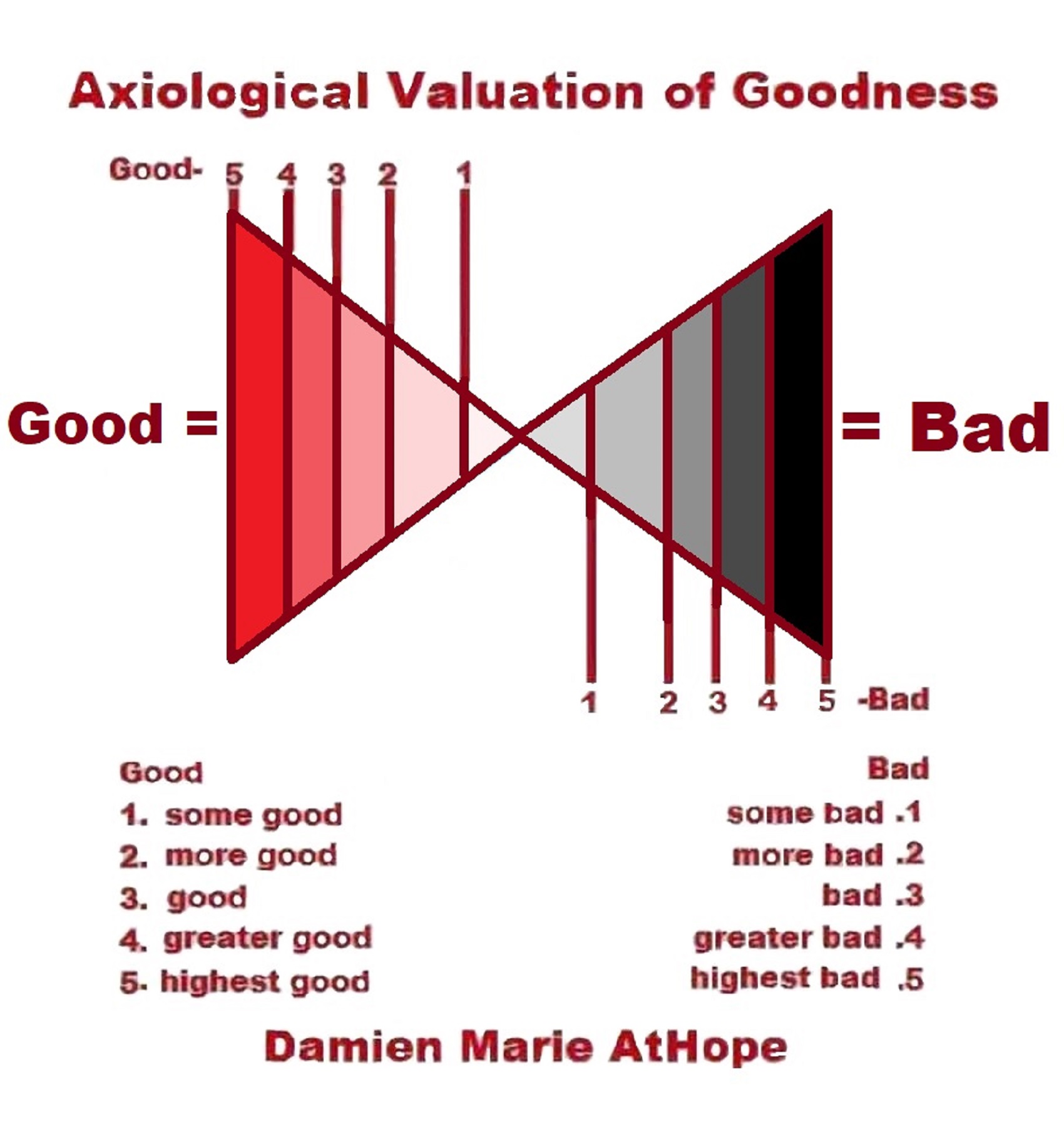
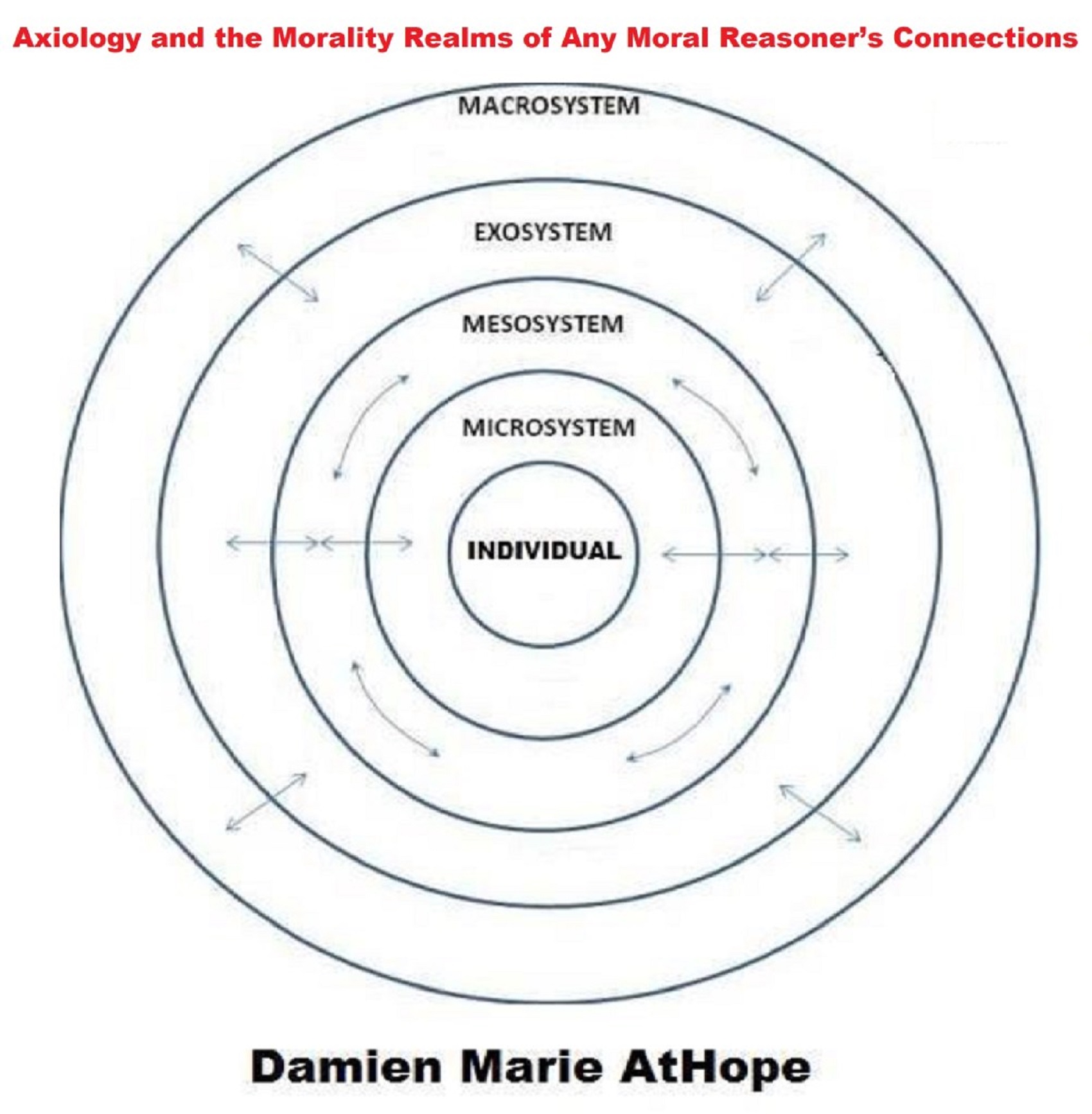
Axiology and the Morality Realms of Any Moral Reasoner’s Connections
To me, reasoned Axiological thinking on morality realms, of any moral reasoner’s connections, and the moral weight they could motivate or affect in any assessed or concluded valuation, they use in making an ultimate choice of behavior. The axiological Valuation approach to moral decision-making would likely use an Ecological Systems Theory modal. And in order to conceptualize “value” you need to understand the environmental contexts, five ecological systems:
- Individual: Usually highest value, though for some people, family members may have the same or higher value than themself.
- Microsystem: Usually the next highest value is placed with the closest relationships to an individual and encompasses interpersonal relationships and direct interactions with immediate surroundings, for example, family members or friends of friends.
- Mesosystem: Usually includes close to semi-close relationships, for example, family friends or friends of friends.
- Exosystem: Usually only involves things such as semi or not directly involved individuals, for example, people at one’s job, people at places you frequent, then moving out and lessening in assessed value as it goes to further removed or extended networks of connectedness or relatedness. Such as the likely value distinctions in the value of the people in one’s city, the people in one’s state, the people in one’s geographic location, region, and/or county, then their perceived home or chosen country.
- Macrosystem: Usually involving all other people outside their likely value distinctions in the value of the people in one’s city, the people in one’s state, the people in one’s geographic location, region, and/or county, then their perceived home or chosen country. Others not often even acknowledged or if assess generally not as favored as the known. As we seem to hold a tendency to overreact with fear at the different or unknown or even the unfamiliar. What we don’t understand, we come to fear. What we fear we learn to hate and often what we hate we seek to destroy. Thus, for clear thinking and ultimately good acting, we should fight such destructive fear. This area of connectedness relates to its farthest possible extent involving the entire world.
“Ecological systems theory (also called development ‘ relationships within communities and the wider society. The theory is also commonly referred to as the ecological/systems framework. It identifies five environmental systems with which an individual interacts.” ref
- “Microsystem: Refers to the institutions and groups that most immediately and directly impact the child’s development including: family, school, religious institutions, neighborhood, and peers.” ref
- “Mesosystem: Consists of interconnections between the microsystems, for example between the family and teachers or between the child’s peers and the family.” ref
- “Exosystem: Involves links between social settings that do not involve the child. For example, a child’s experience at home may be influenced by their parent’s experiences at work. A parent might receive a promotion that requires more travel, which in turn increases conflict with the other parent resulting in changes in their patterns of interaction with the child.” ref
- “Macrosystem: Describes the overarching culture that influences the developing child, as well as the microsystems and mesosystems embedded in those cultures. Cultural contexts can differ based on geographic location, socioeconomic status, poverty, and ethnicity. Members of a cultural group often share a common identity, heritage, and values. Macrosystems evolve across time and from generation to generation.” ref
- “Chronosystem: Consists of the pattern of environmental events and transitions over the life course, as well as changing socio-historical circumstances. For example, researchers have found that the negative effects of divorce on children often peak in the first year after the divorce. By two years after the divorce, family interaction is less chaotic and more stable. An example of changing sociohistorical circumstances is the increase in opportunities for women to pursue a career during the last thirty years.” ref
“Later work by Bronfenbrenner considered the role of biology in this model as well; thus the theory has sometimes been called the Bioecological model. Per this theoretical construction, each system contains roles, norms, and rules which may shape psychological development. For example, an inner-city family faces many challenges which an affluent family in a gated community does not, and vice versa. The inner-city family is more likely to experience environmental hardships, like crime and squalor. On the other hand, the sheltered family is more likely to lack the nurturing support of extended family.” ref
“Since its publication in 1979, Bronfenbrenner’s major statement of this theory, The Ecology of Human Development has had widespread influence on the way psychologists and others approach the study of human beings and their environments. As a result of his groundbreaking work in human ecology, these environments — from the family to economic and political structures — have come to be viewed as part of the life course from childhood through adulthood.” ref
“Bronfenbrenner has identified Soviet developmental psychologist Lev Vygotsky and German-born psychologist Kurt Lewin as important influences on his theory. Bronfenbrenner’s work provides one of the foundational elements of the ecological counseling perspective, as espoused by Robert K. Conyne, Ellen Cook, and the University of Cincinnati Counseling Program. There are many different theories related to human development. Human ecology theory emphasizes environmental factors as central to development.” ref
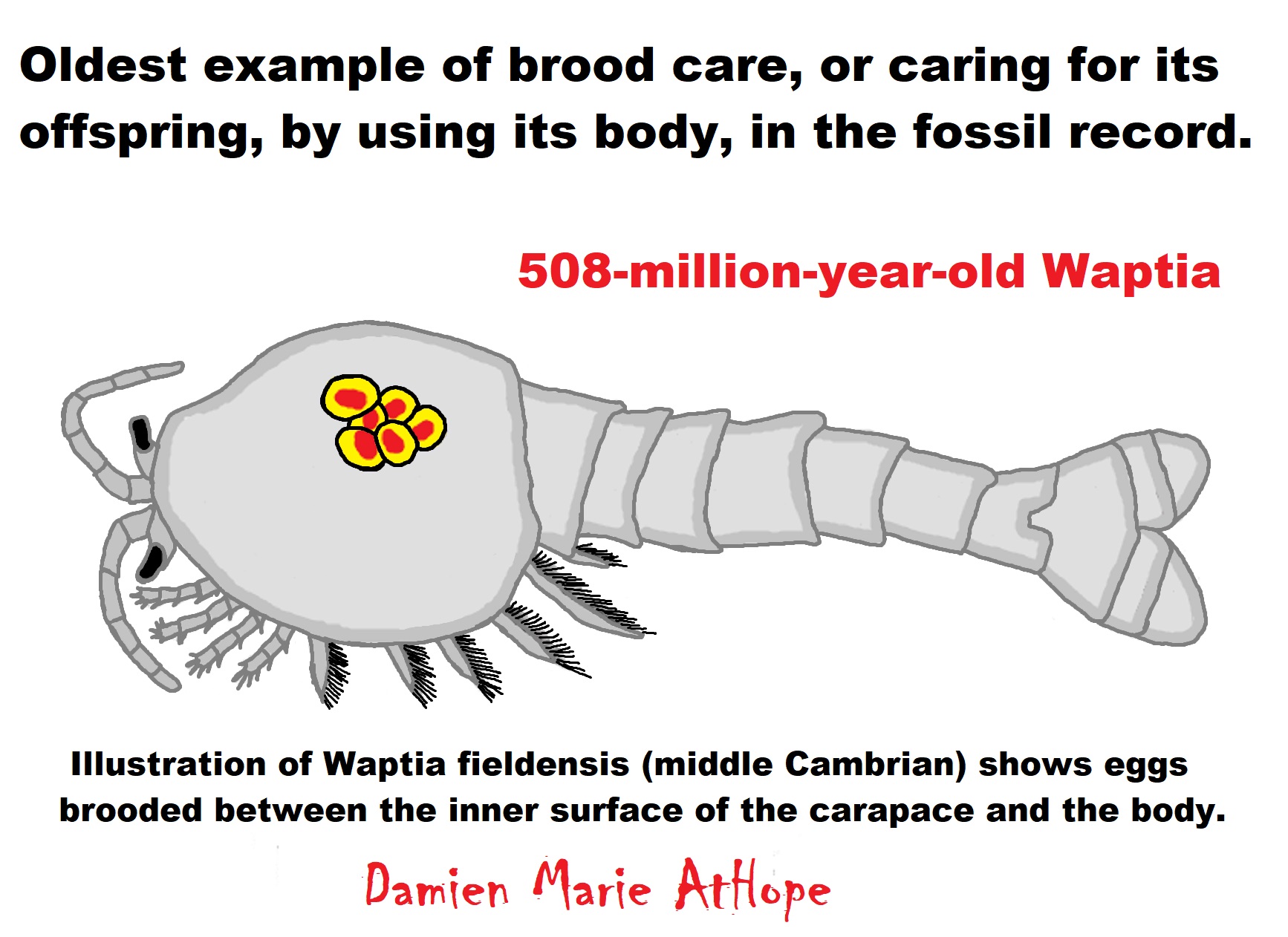
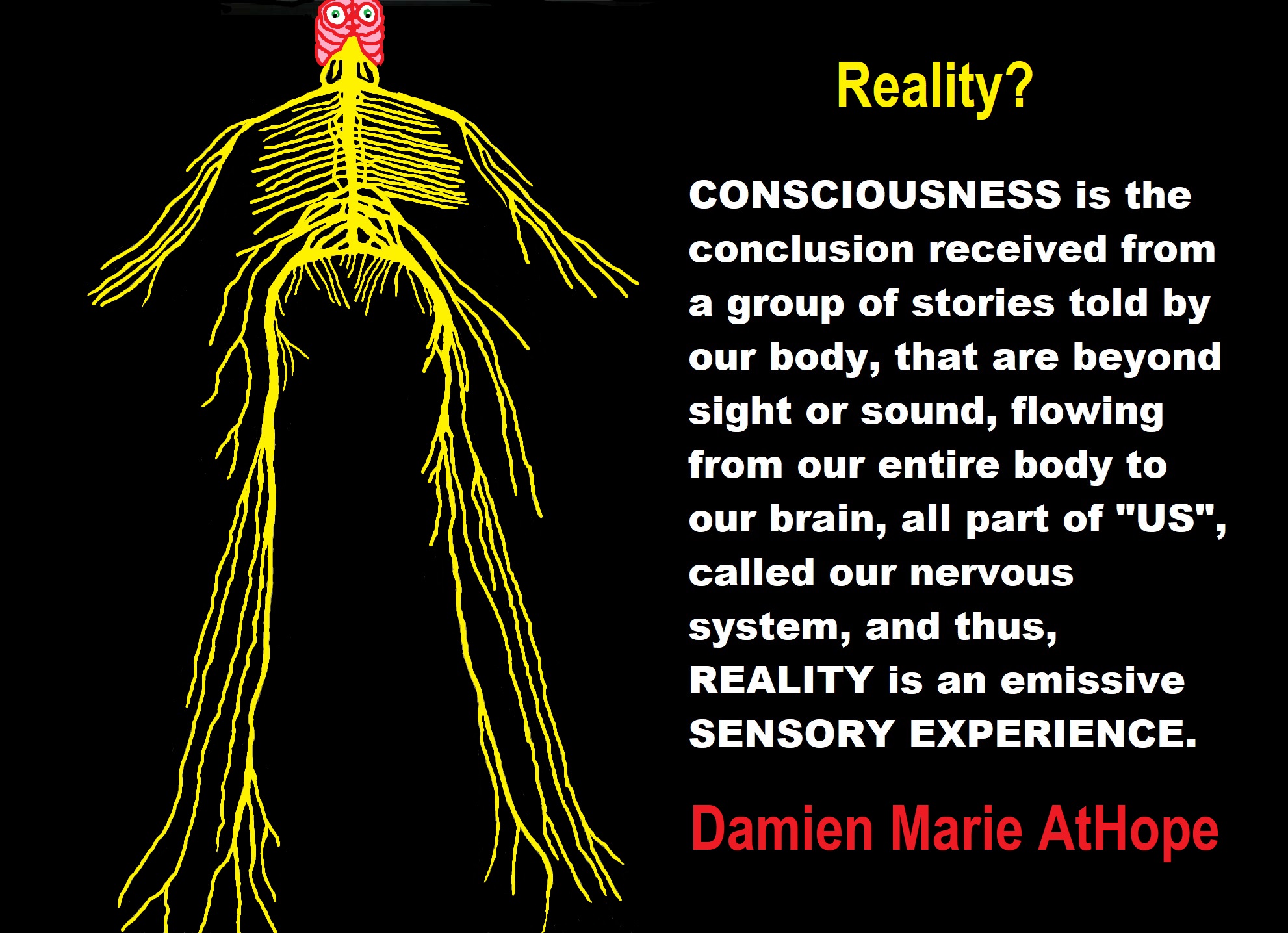
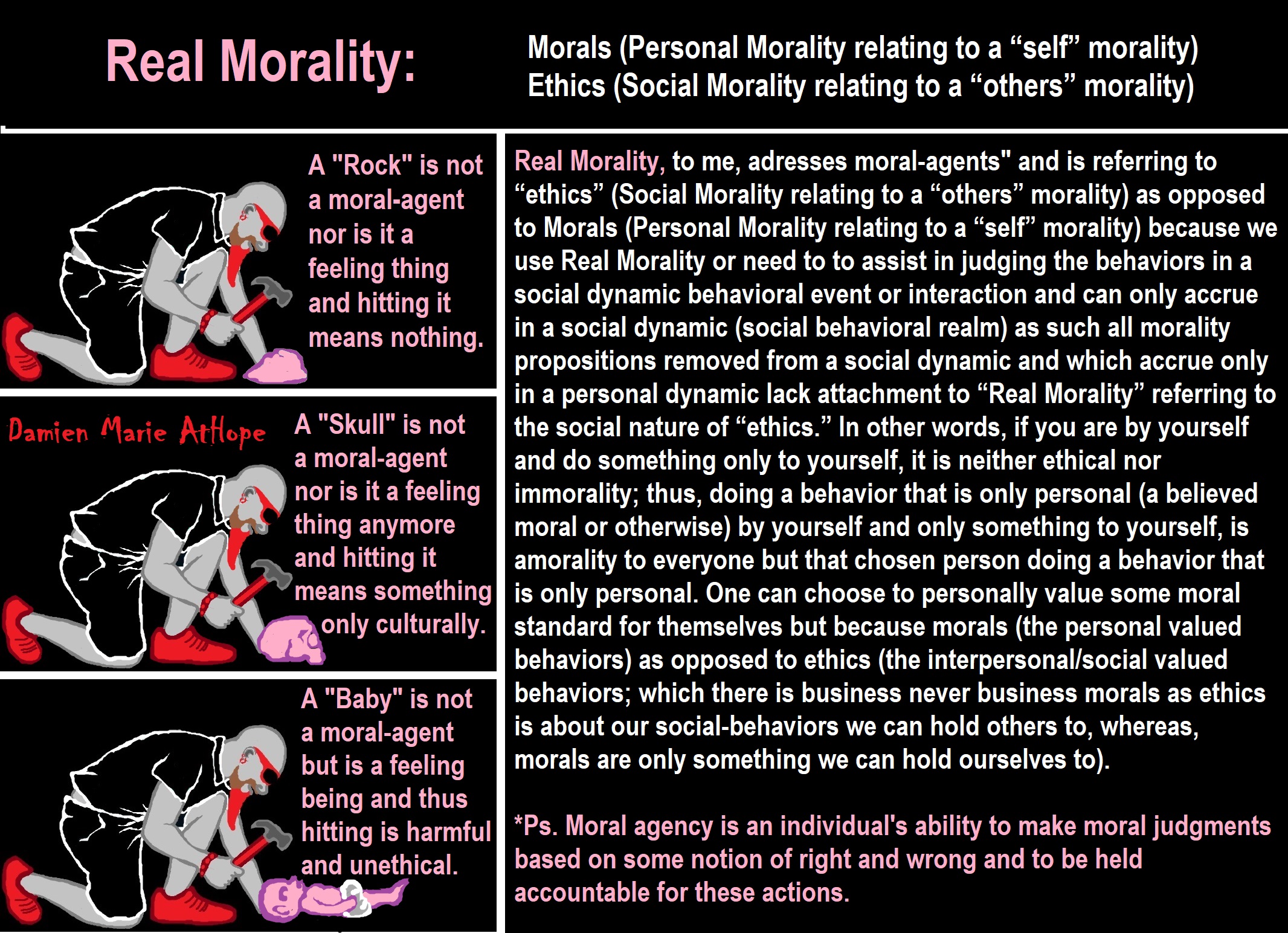
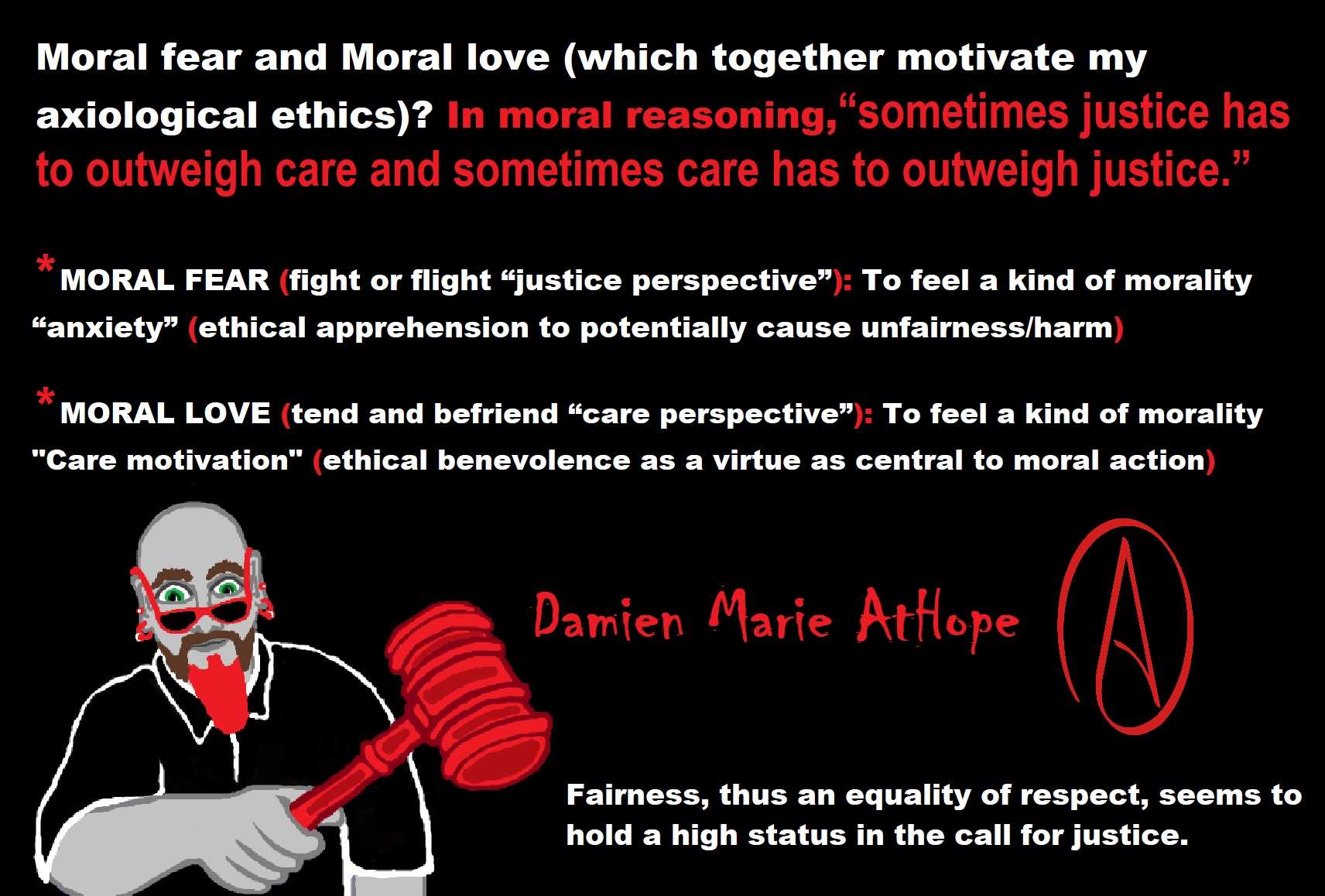
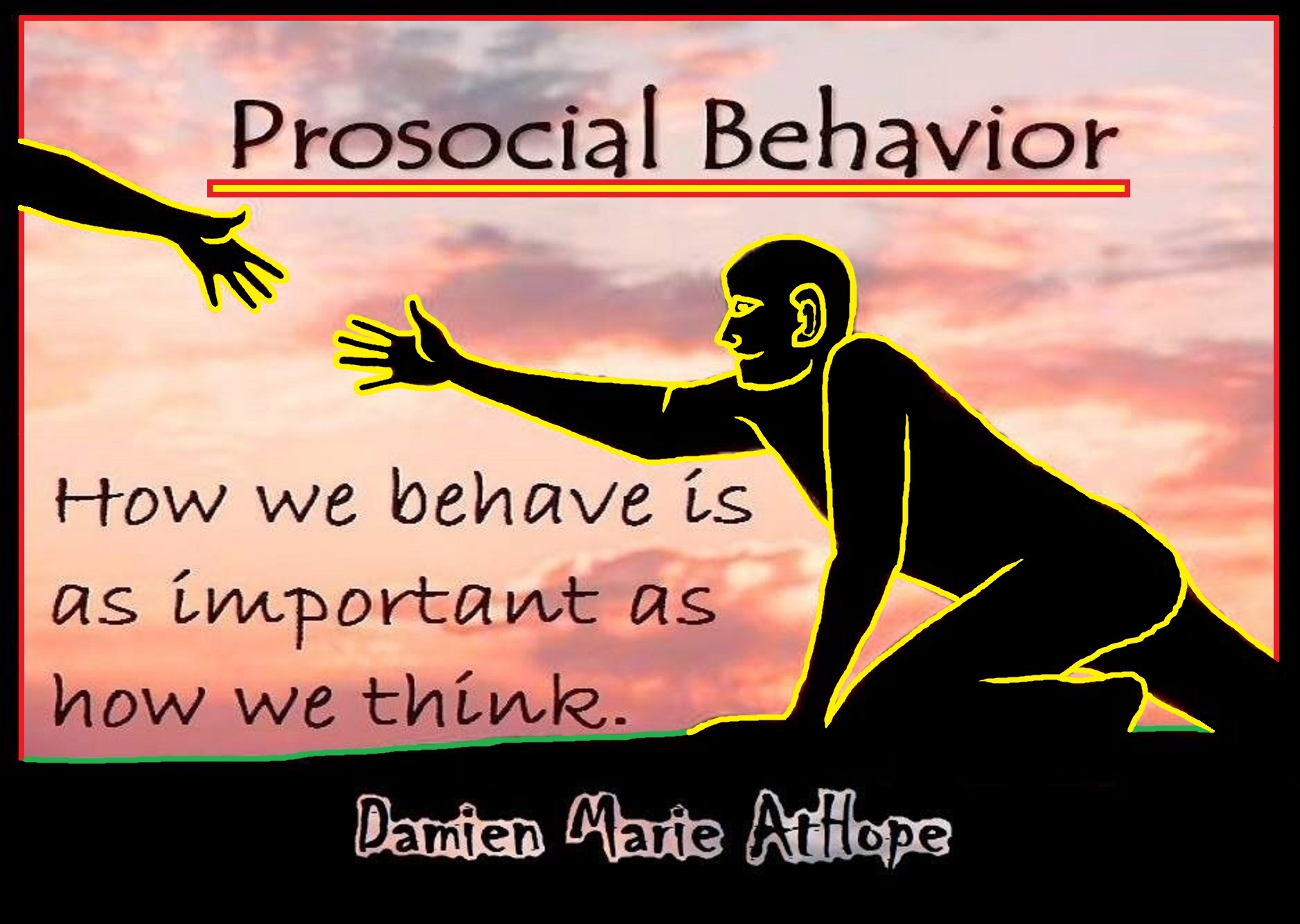
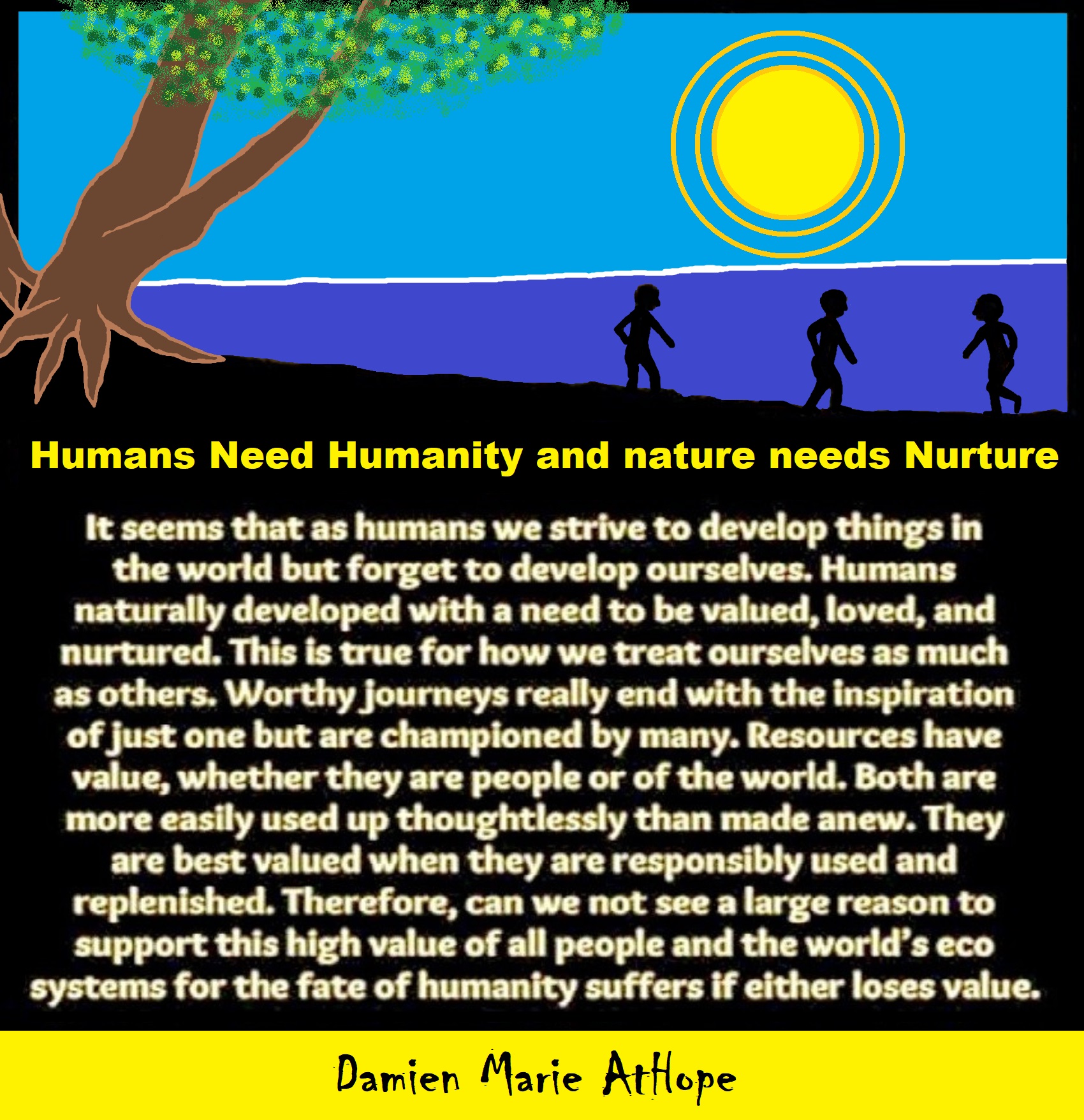
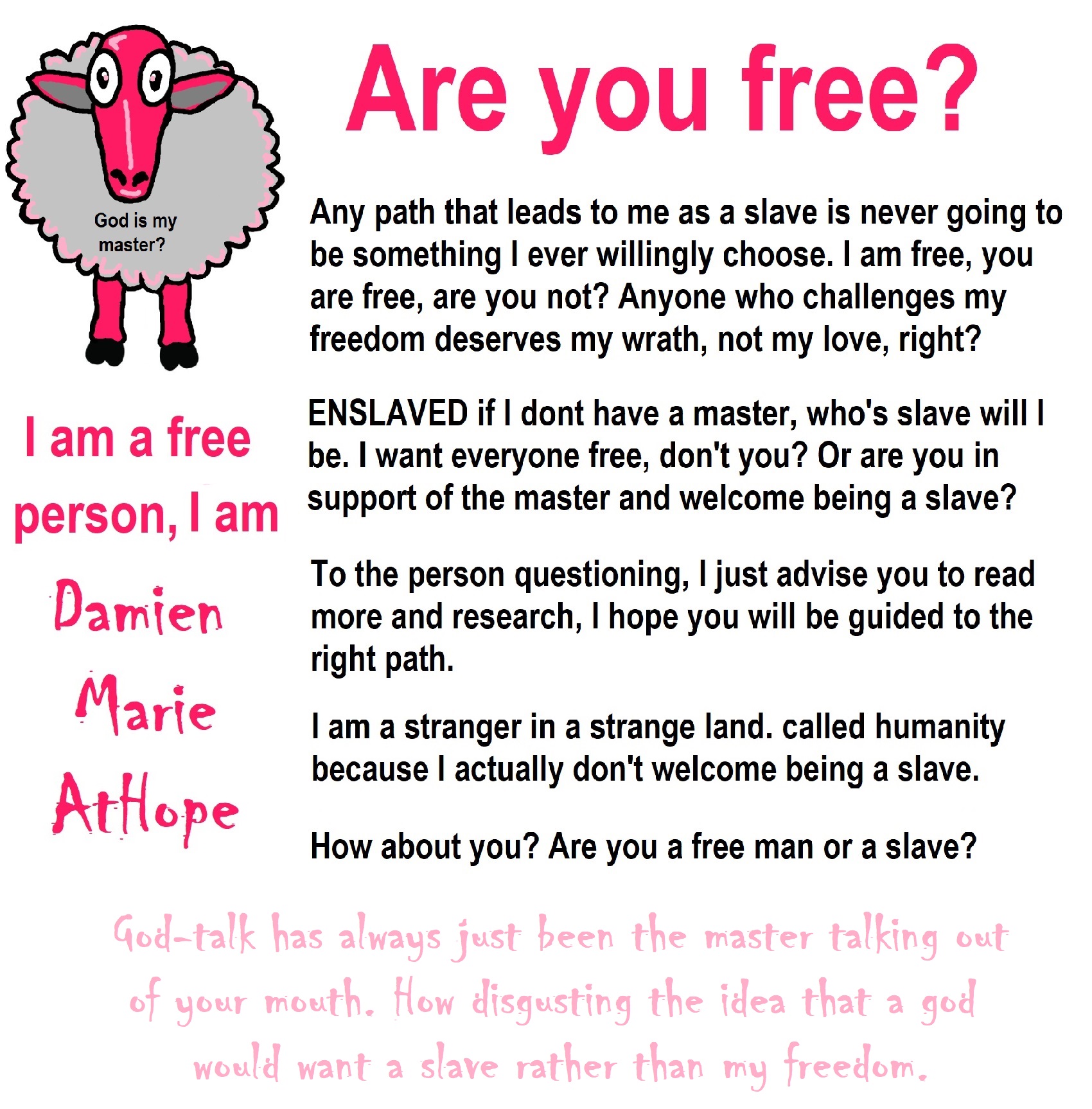
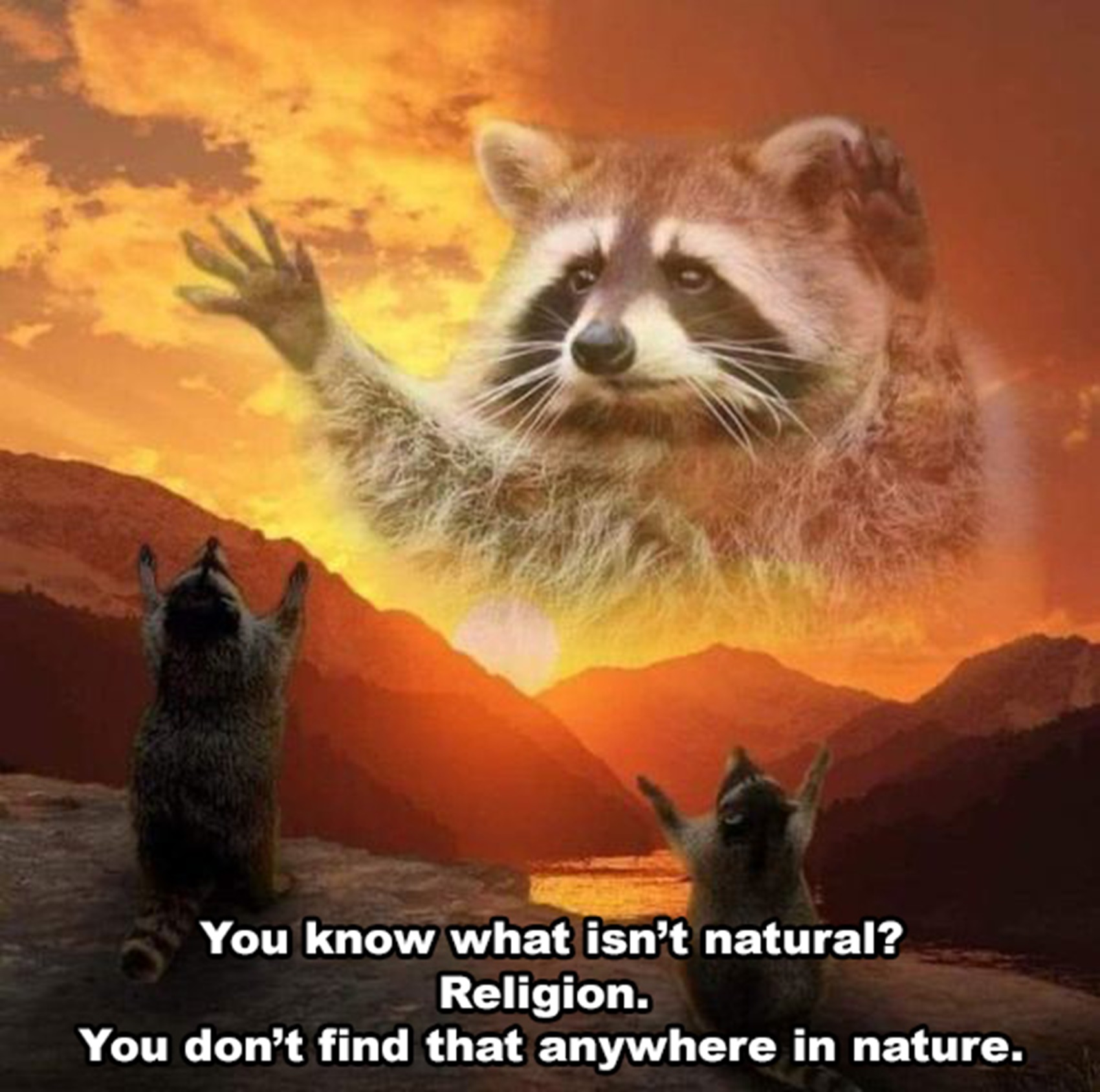

“Theists, there has to be a god, as something can not come from nothing.”
Well, thus something (unknown) happened and then there was something. This does not tell us what the something that may have been involved with something coming from nothing. A supposed first cause, thus something (unknown) happened and then there was something is not an open invitation to claim it as known, neither is it justified to call or label such an unknown as anything, especially an unsubstantiated magical thinking belief born of mythology and religious storytelling.


While hallucinogens are associated with shamanism, it is alcohol that is associated with paganism.
The Atheist-Humanist-Leftist Revolutionaries Shows in the prehistory series:
Show two: Pre-animism 300,000 years old and animism 100,000 years old: related to “Anarchism and Socialism”
Show tree: Totemism 50,000 years old: related to “Anarchism and Socialism”
Show four: Shamanism 30,000 years old: related to “Anarchism and Socialism”
Show five: Paganism 12,000 years old: related to “Anarchism and Socialism”
Show six: Emergence of hierarchy, sexism, slavery, and the new male god dominance: Paganism 7,000-5,000 years old: related to “Anarchism and Socialism” (Capitalism) (World War 0) Elite and their slaves!
Prehistory: related to “Anarchism and Socialism” the division of labor, power, rights, and recourses: VIDEO
Pre-animism 300,000 years old and animism 100,000 years old: related to “Anarchism and Socialism”: VIDEO
Totemism 50,000 years old: related to “Anarchism and Socialism”: VIDEO
Shamanism 30,000 years old: related to “Anarchism and Socialism”: VIDEO
Paganism 12,000 years old: related to “Anarchism and Socialism” (Pre-Capitalism): VIDEO
Paganism 7,000-5,000 years old: related to “Anarchism and Socialism” (Capitalism) (World War 0) Elite and their slaves: VIEDO
Paganism 5,000 years old: progressed organized religion and the state: related to “Anarchism and Socialism” (Kings and the Rise of the State): VIEDO
Paganism 4,000 years old: related to “Anarchism and Socialism” (First Moralistic gods, then the Origin time of Monotheism): VIEDO
I do not hate simply because I challenge and expose myths or lies any more than others being thought of as loving simply because of the protection and hiding from challenge their favored myths or lies.
The truth is best championed in the sunlight of challenge.
An archaeologist once said to me “Damien religion and culture are very different”
My response, So are you saying that was always that way, such as would you say Native Americans’ cultures are separate from their religions? And do you think it always was the way you believe?
I had said that religion was a cultural product. That is still how I see it and there are other archaeologists that think close to me as well. Gods too are the myths of cultures that did not understand science or the world around them, seeing magic/supernatural everywhere.
I personally think there is a goddess and not enough evidence to support a male god at Çatalhöyük but if there was both a male and female god and goddess then I know the kind of gods they were like Proto-Indo-European mythology.
This series idea was addressed in, Anarchist Teaching as Free Public Education or Free Education in the Public: VIDEO
Our 12 video series: Organized Oppression: Mesopotamian State Force and the Politics of power (9,000-4,000 years ago), is adapted from: The Complete and Concise History of the Sumerians and Early Bronze Age Mesopotamia (7000-2000 BC): https://www.youtube.com/watch?v=szFjxmY7jQA by “History with Cy“
Show #1: Mesopotamian State Force and the Politics of Power (Samarra, Halaf, Ubaid)
Show #2: Mesopotamian State Force and the Politics of Power
Show #3: Mesopotamian State Force and the Politics of Power (Uruk and the First Cities)
Show #4: Mesopotamian State Force and the Politics of Power (First Kings)
Show #5: Mesopotamian State Force and the Politics of Power (Early Dynastic Period)
Show #6: Mesopotamian State Force and the Politics of Power
Show #7: Mesopotamian State Force and the Politics of Power (Sargon and Akkadian Rule)
Show #9: Mesopotamian State Force and the Politics of Power (Gudea of Lagash and Utu-hegal)
Show #12: Mesopotamian State Force and the Politics of Power (Aftermath and Legacy of Sumer)

The “Atheist-Humanist-Leftist Revolutionaries”
Cory Johnston ☭ Ⓐ Atheist Leftist @Skepticallefty & I (Damien Marie AtHope) @AthopeMarie (my YouTube & related blog) are working jointly in atheist, antitheist, antireligionist, antifascist, anarchist, socialist, and humanist endeavors in our videos together, generally, every other Saturday.
Why Does Power Bring Responsibility?
Think, how often is it the powerless that start wars, oppress others, or commit genocide? So, I guess the question is to us all, to ask, how can power not carry responsibility in a humanity concept? I know I see the deep ethical responsibility that if there is power their must be a humanistic responsibility of ethical and empathic stewardship of that power. Will I be brave enough to be kind? Will I possess enough courage to be compassionate? Will my valor reach its height of empathy? I as everyone, earns our justified respect by our actions, that are good, ethical, just, protecting, and kind. Do I have enough self-respect to put my love for humanity’s flushing, over being brought down by some of its bad actors? May we all be the ones doing good actions in the world, to help human flourishing.
I create the world I want to live in, striving for flourishing. Which is not a place but a positive potential involvement and promotion; a life of humanist goal precision. To master oneself, also means mastering positive prosocial behaviors needed for human flourishing. I may have lost a god myth as an atheist, but I am happy to tell you, my friend, it is exactly because of that, leaving the mental terrorizer, god belief, that I truly regained my connected ethical as well as kind humanity.
Cory and I will talk about prehistory and theism, addressing the relevance to atheism, anarchism, and socialism.
At the same time as the rise of the male god, 7,000 years ago, there was also the very time there was the rise of violence, war, and clans to kingdoms, then empires, then states. It is all connected back to 7,000 years ago, and it moved across the world.
Cory Johnston: https://damienmarieathope.com/2021/04/cory-johnston-mind-of-a-skeptical-leftist/?v=32aec8db952d
The Mind of a Skeptical Leftist (YouTube)
Cory Johnston: Mind of a Skeptical Leftist @Skepticallefty
The Mind of a Skeptical Leftist By Cory Johnston: “Promoting critical thinking, social justice, and left-wing politics by covering current events and talking to a variety of people. Cory Johnston has been thoughtfully talking to people and attempting to promote critical thinking, social justice, and left-wing politics.” http://anchor.fm/skepticalleft
Cory needs our support. We rise by helping each other.
Cory Johnston ☭ Ⓐ @Skepticallefty Evidence-based atheist leftist (he/him) Producer, host, and co-host of 4 podcasts @skeptarchy @skpoliticspod and @AthopeMarie
Damien Marie AtHope (“At Hope”) Axiological Atheist, Anti-theist, Anti-religionist, Secular Humanist. Rationalist, Writer, Artist, Poet, Philosopher, Advocate, Activist, Psychology, and Armchair Archaeology/Anthropology/Historian.
Damien is interested in: Freedom, Liberty, Justice, Equality, Ethics, Humanism, Science, Atheism, Antiteism, Antireligionism, Ignosticism, Left-Libertarianism, Anarchism, Socialism, Mutualism, Axiology, Metaphysics, LGBTQI, Philosophy, Advocacy, Activism, Mental Health, Psychology, Archaeology, Social Work, Sexual Rights, Marriage Rights, Woman’s Rights, Gender Rights, Child Rights, Secular Rights, Race Equality, Ageism/Disability Equality, Etc. And a far-leftist, “Anarcho-Humanist.”
I am not a good fit in the atheist movement that is mostly pro-capitalist, I am anti-capitalist. Mostly pro-skeptic, I am a rationalist not valuing skepticism. Mostly pro-agnostic, I am anti-agnostic. Mostly limited to anti-Abrahamic religions, I am an anti-religionist.
To me, the “male god” seems to have either emerged or become prominent around 7,000 years ago, whereas the now favored monotheism “male god” is more like 4,000 years ago or so. To me, the “female goddess” seems to have either emerged or become prominent around 11,000-10,000 years ago or so, losing the majority of its once prominence around 2,000 years ago due largely to the now favored monotheism “male god” that grow in prominence after 4,000 years ago or so.
My Thought on the Evolution of Gods?
Animal protector deities from old totems/spirit animal beliefs come first to me, 13,000/12,000 years ago, then women as deities 11,000/10,000 years ago, then male gods around 7,000/8,000 years ago. Moralistic gods around 5,000/4,000 years ago, and monotheistic gods around 4,000/3,000 years ago.
To me, animal gods were likely first related to totemism animals around 13,000 to 12,000 years ago or older. Female as goddesses was next to me, 11,000 to 10,000 years ago or so with the emergence of agriculture. Then male gods come about 8,000 to 7,000 years ago with clan wars. Many monotheism-themed religions started in henotheism, emerging out of polytheism/paganism.


Damien Marie AtHope (Said as “At” “Hope”)/(Autodidact Polymath but not good at math):
Axiological Atheist, Anti-theist, Anti-religionist, Secular Humanist, Rationalist, Writer, Artist, Jeweler, Poet, “autodidact” Philosopher, schooled in Psychology, and “autodidact” Armchair Archaeology/Anthropology/Pre-Historian (Knowledgeable in the range of: 1 million to 5,000/4,000 years ago). I am an anarchist socialist politically. Reasons for or Types of Atheism
My Website, My Blog, & Short-writing or Quotes, My YouTube, Twitter: @AthopeMarie, and My Email: damien.marie.athope@gmail.com
